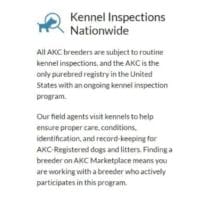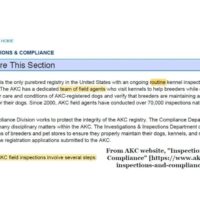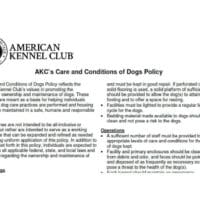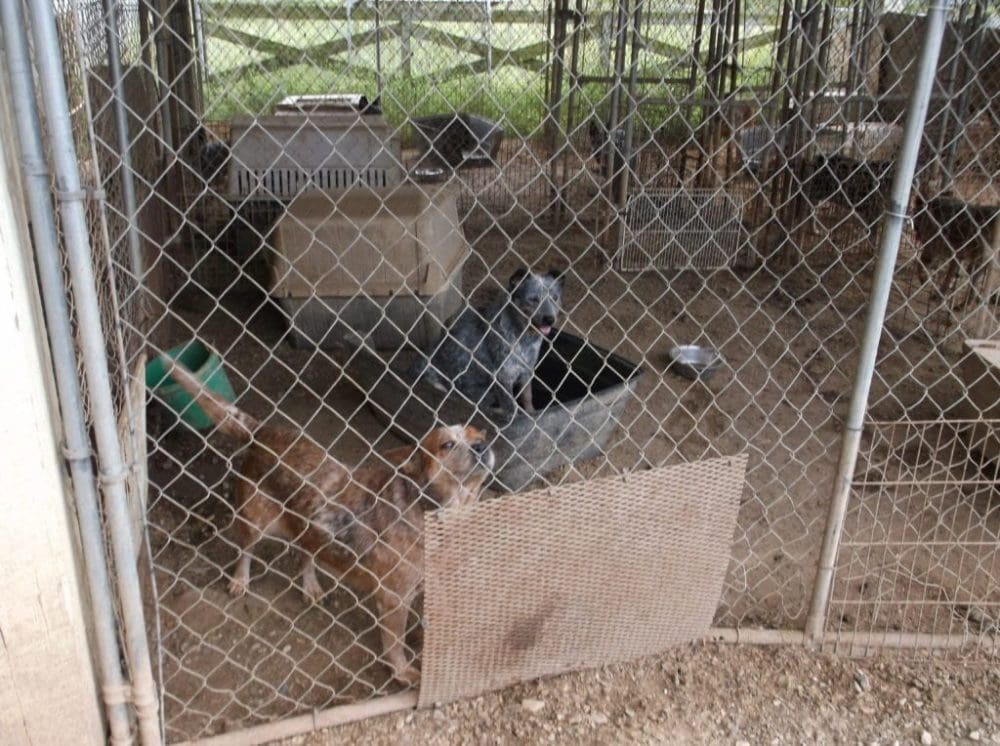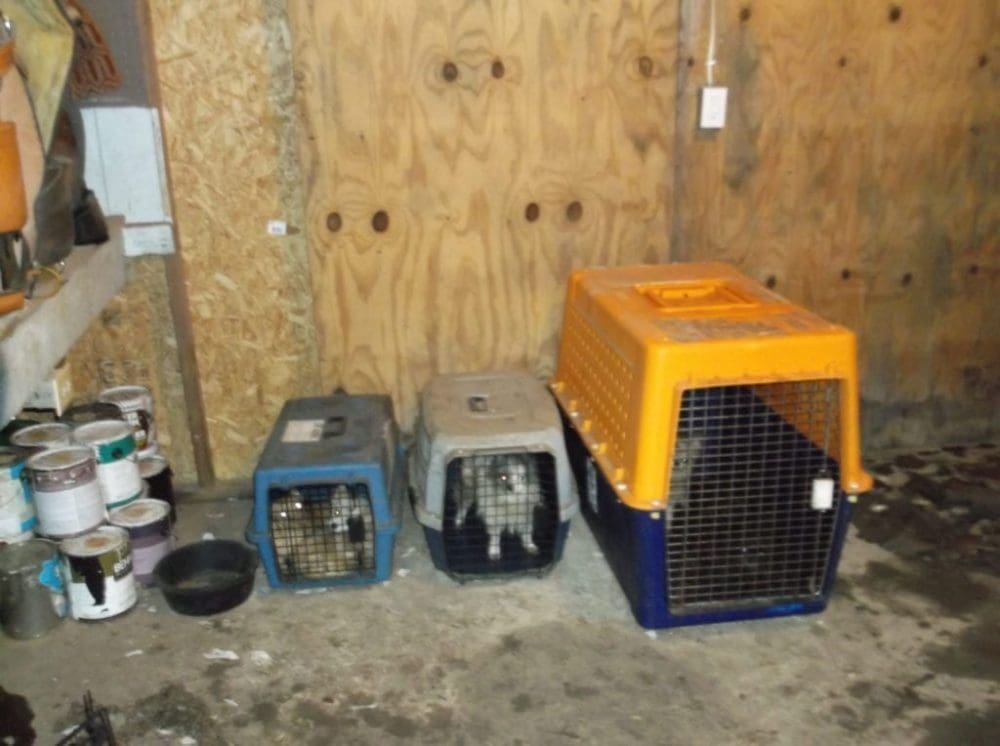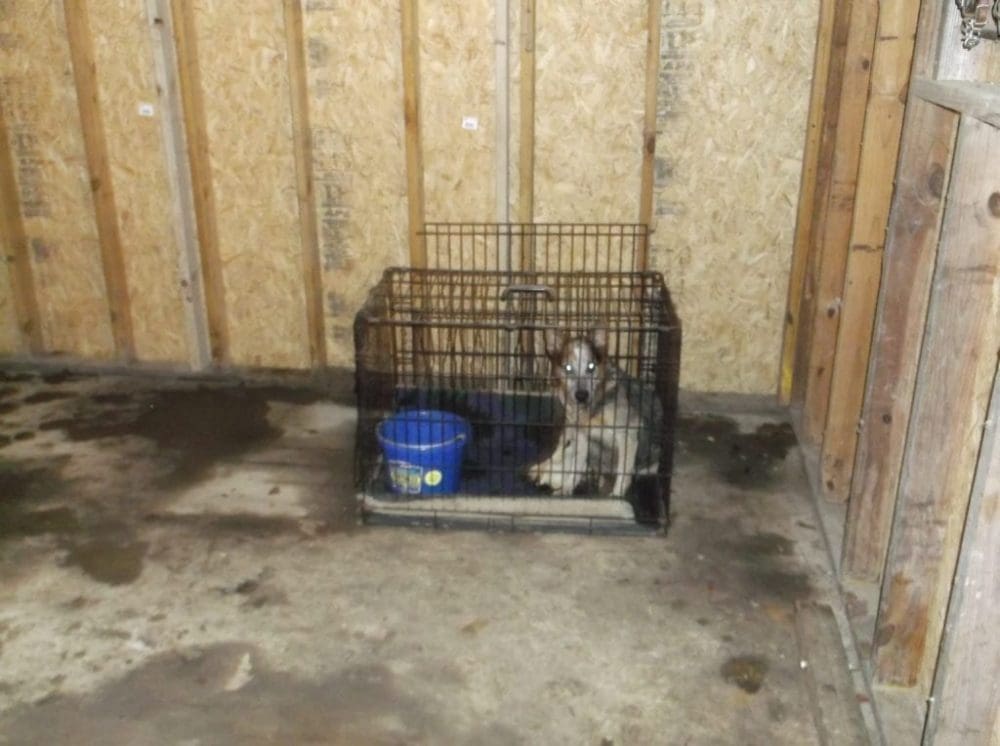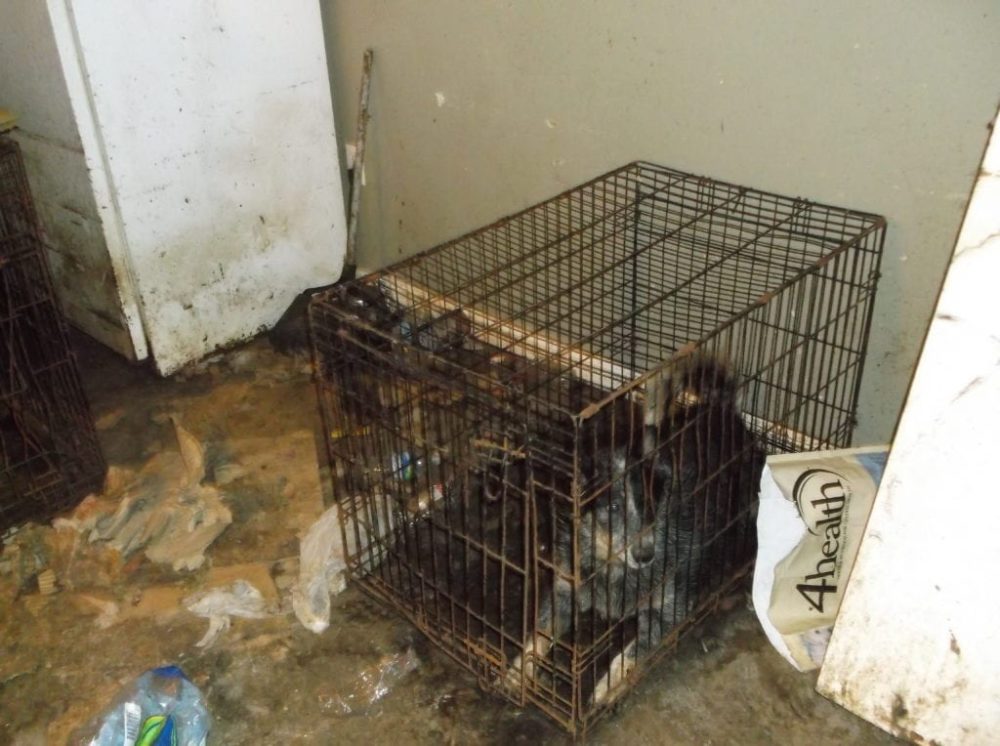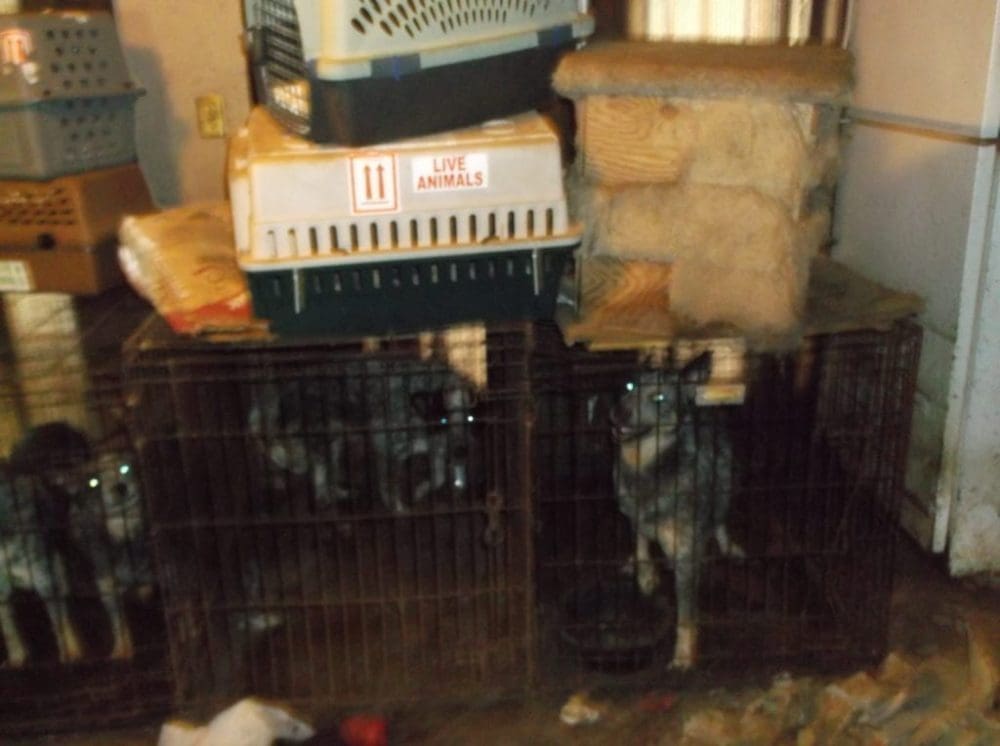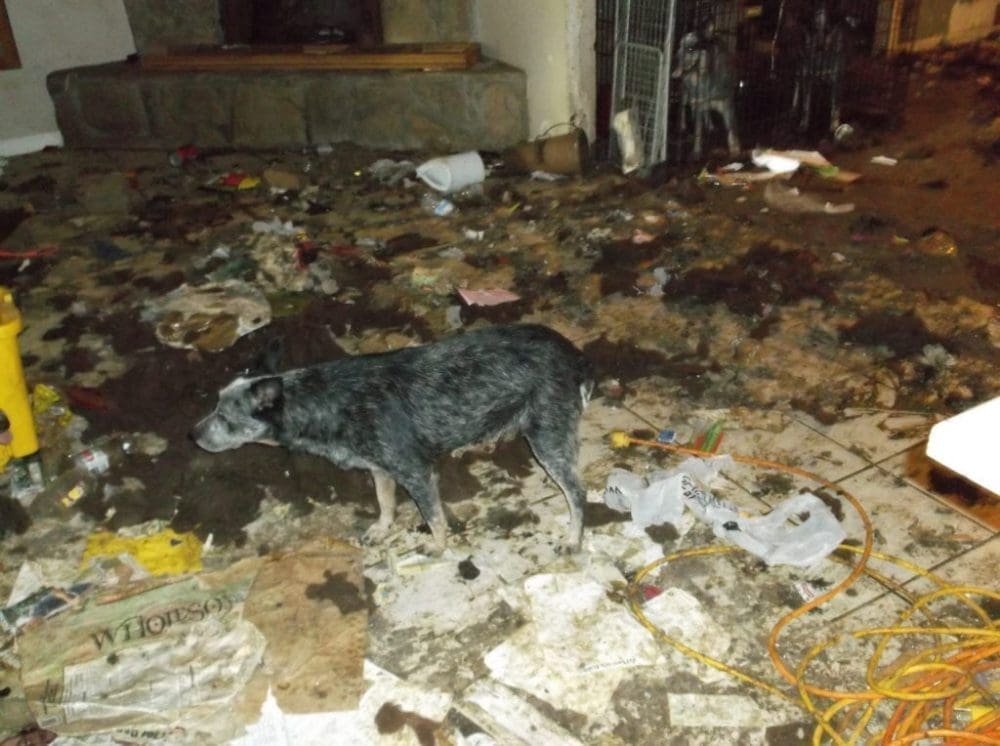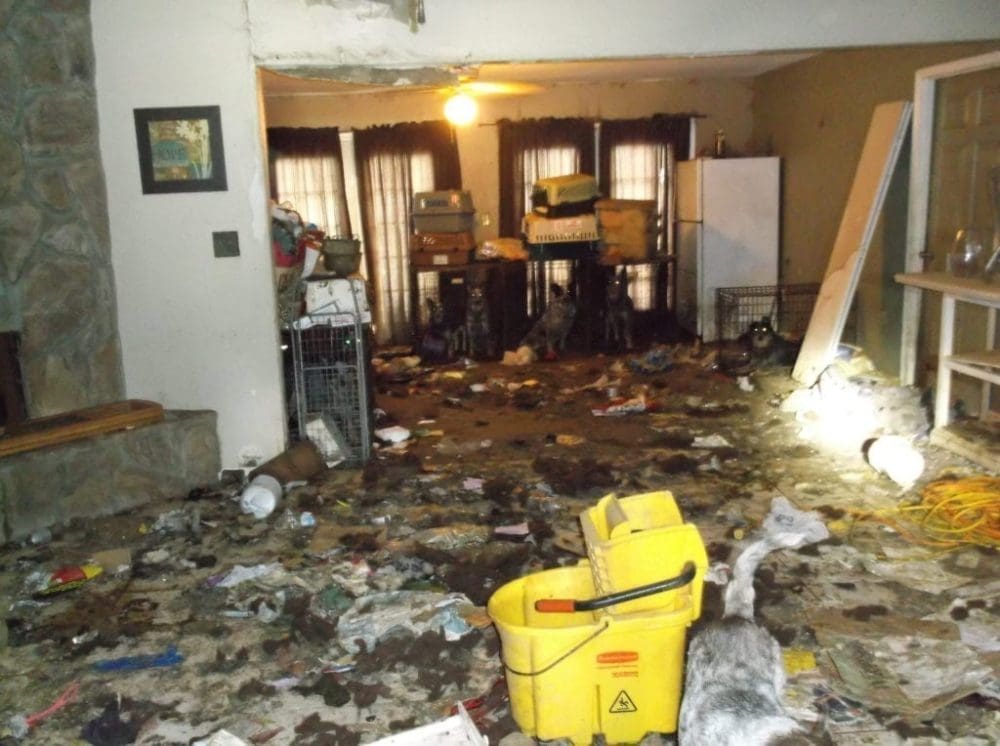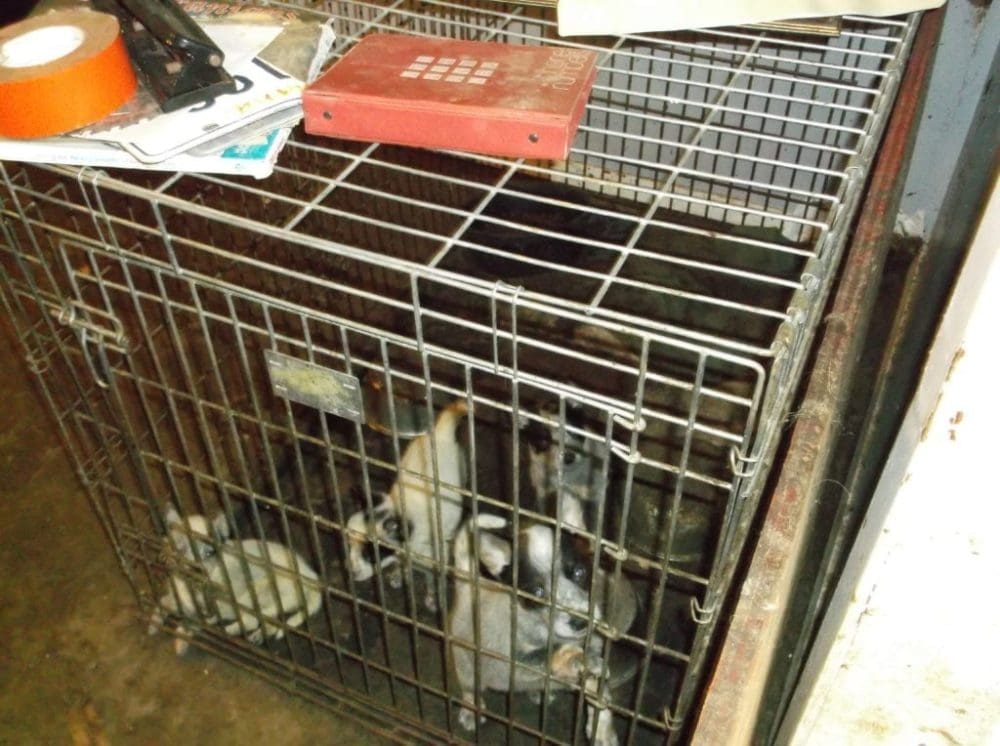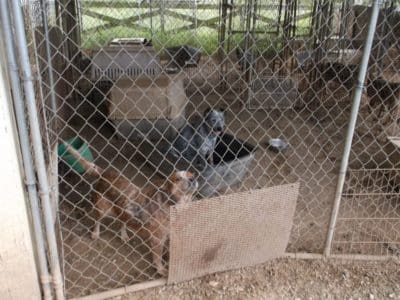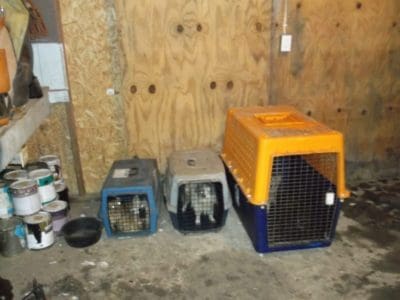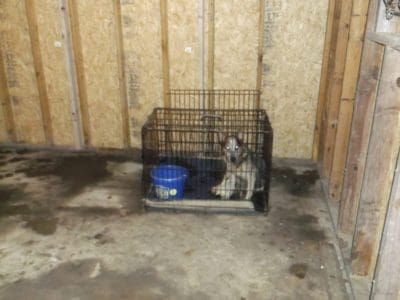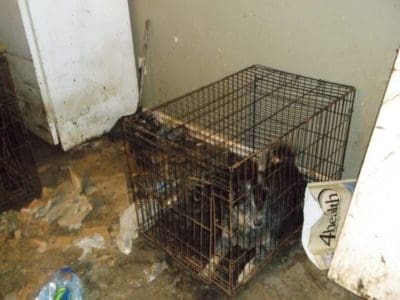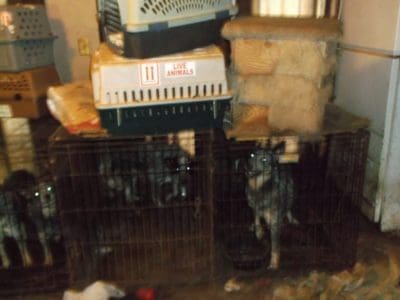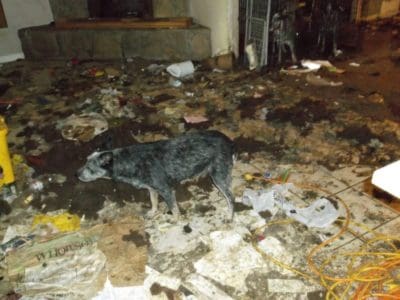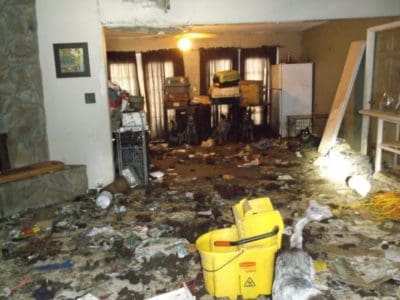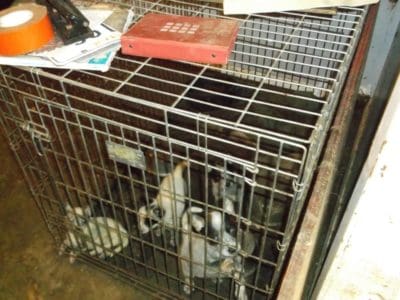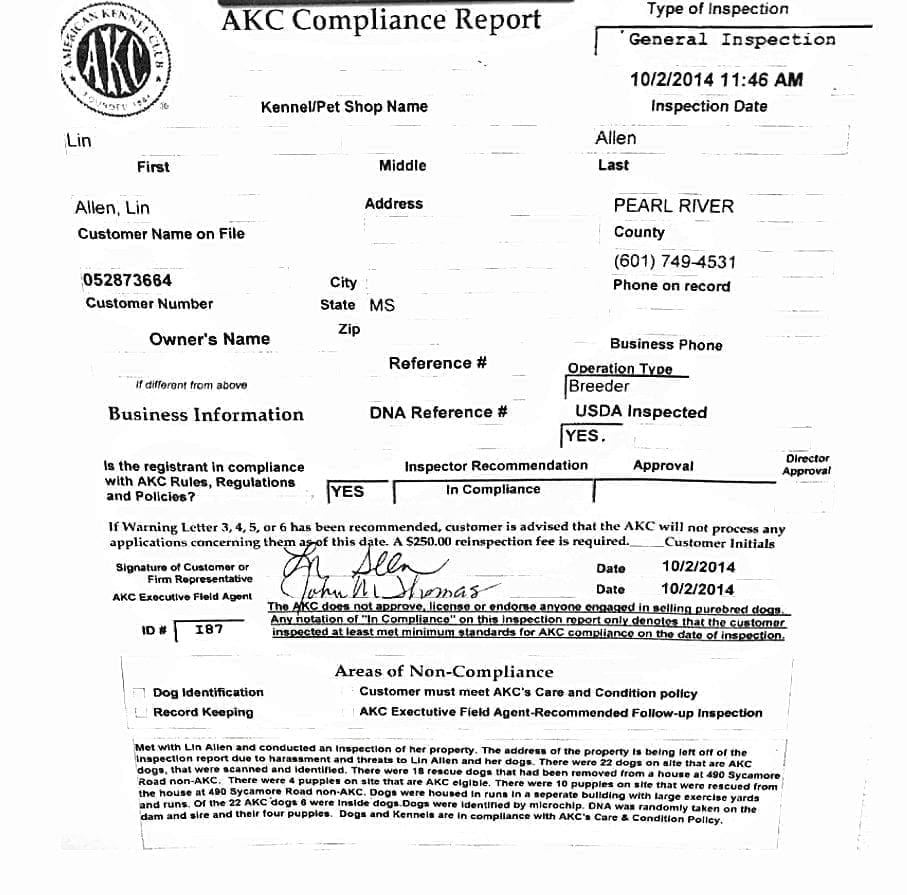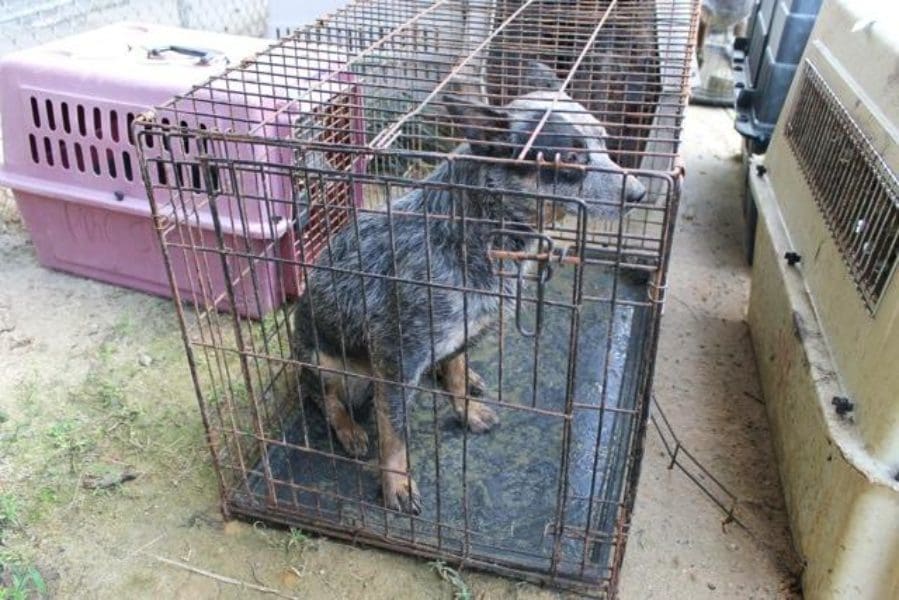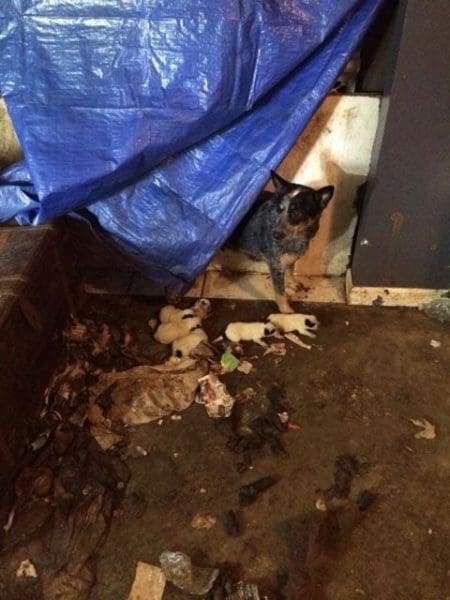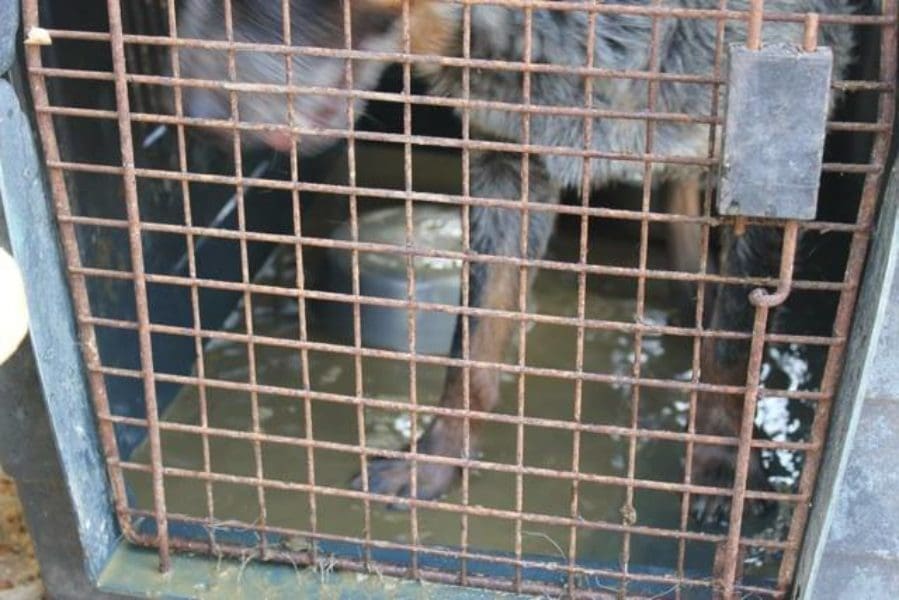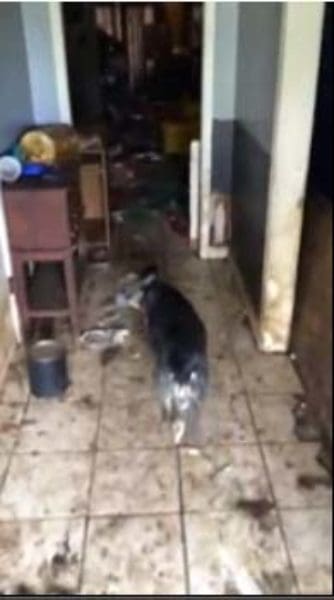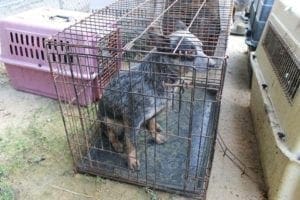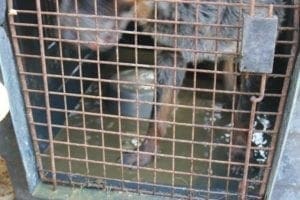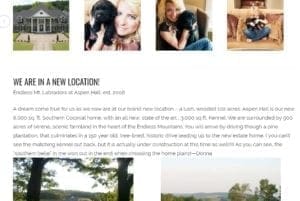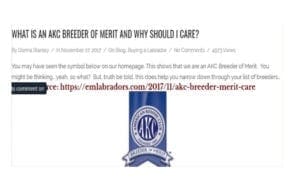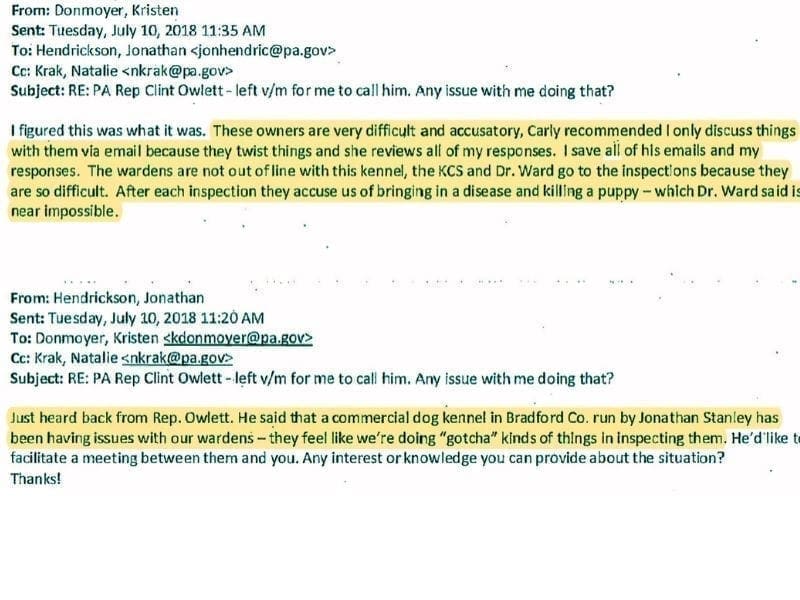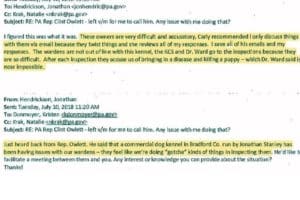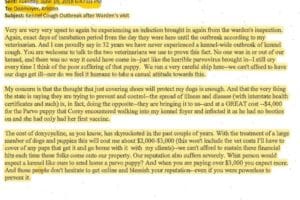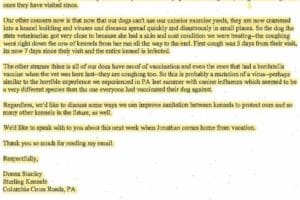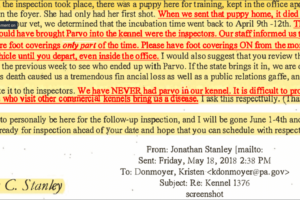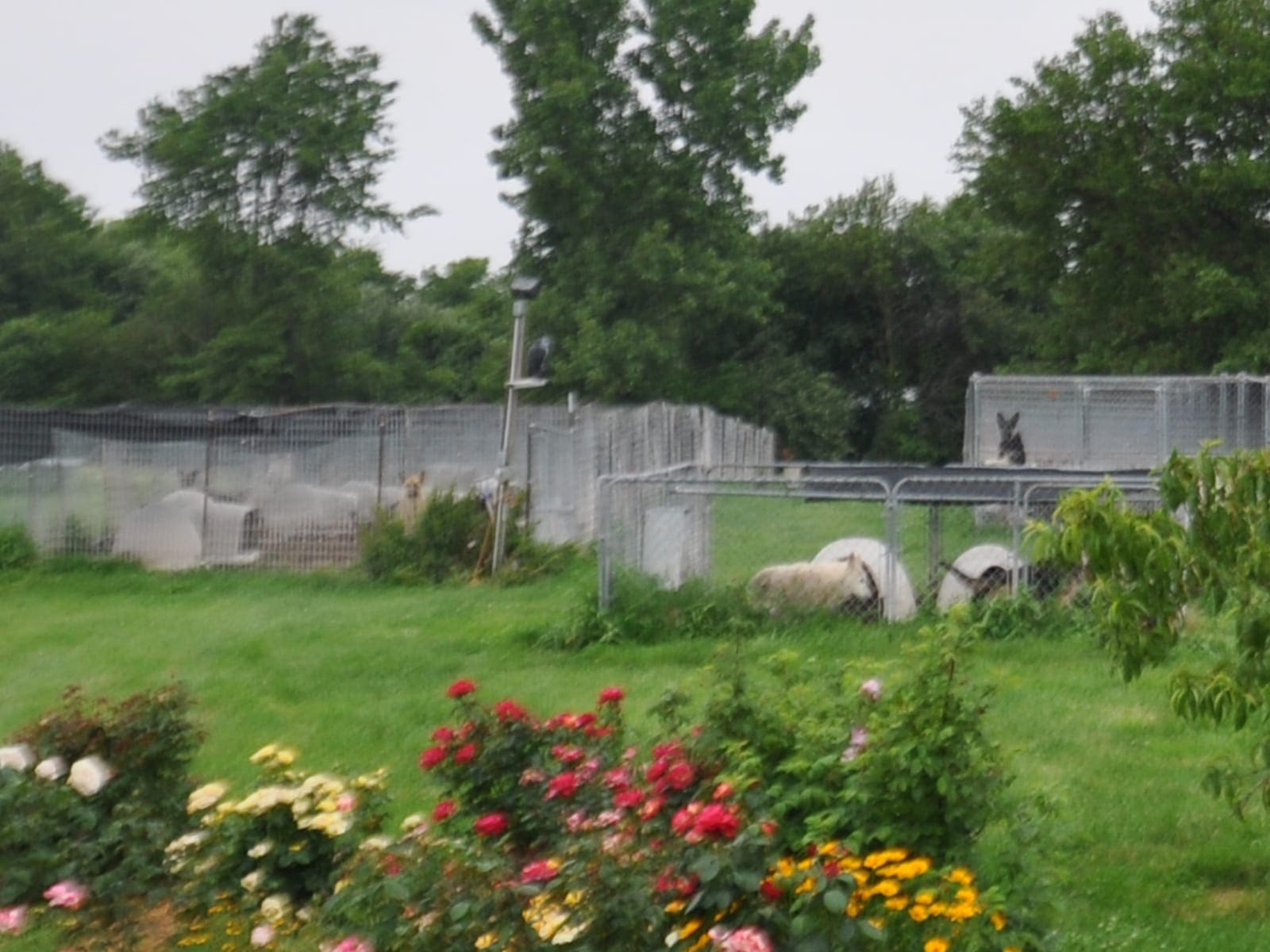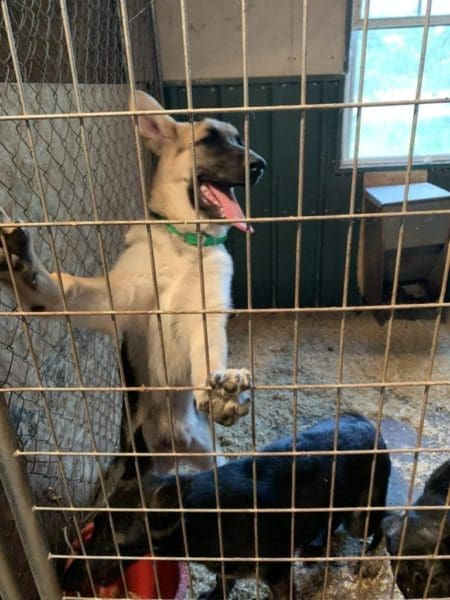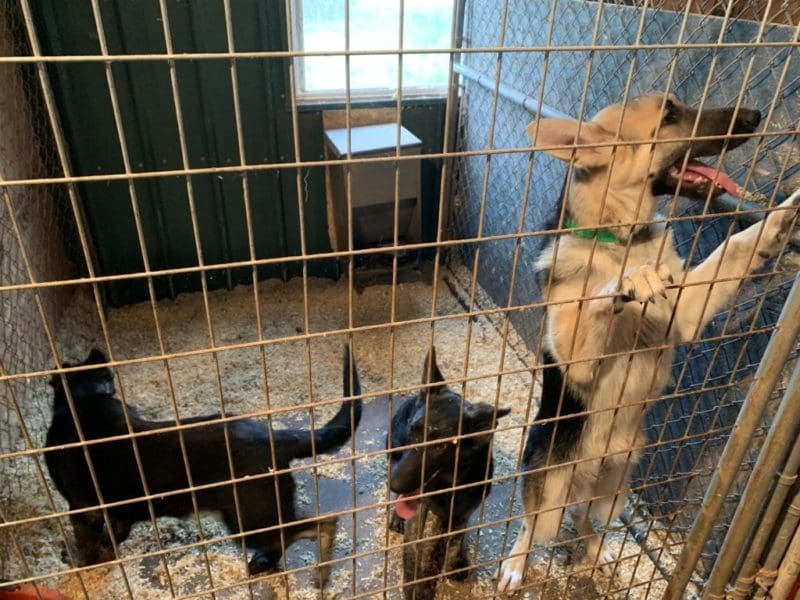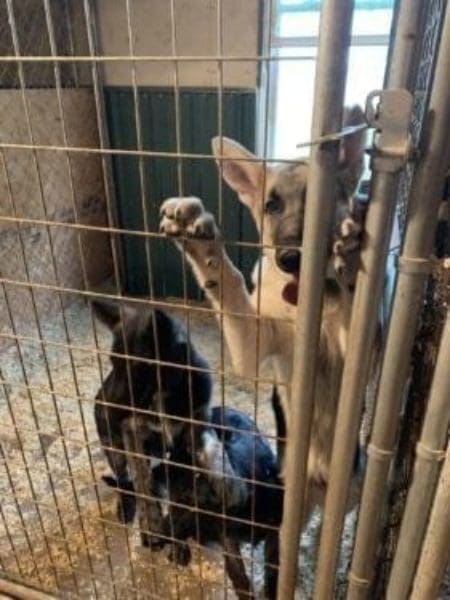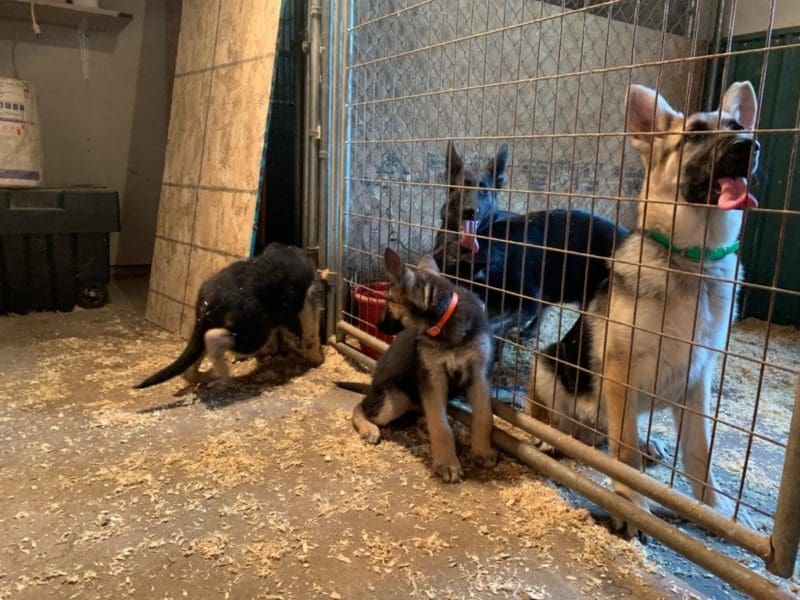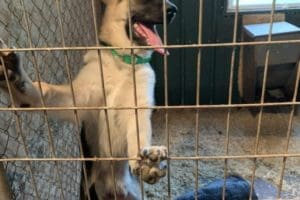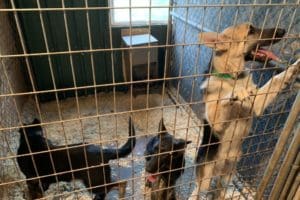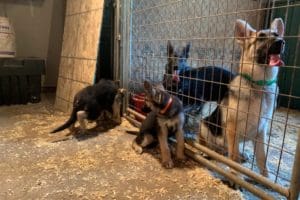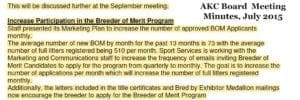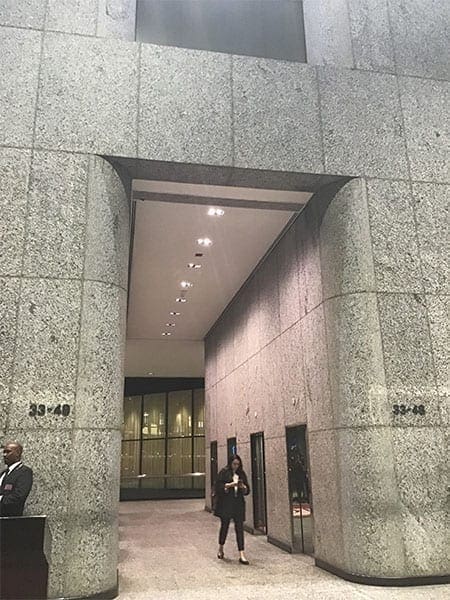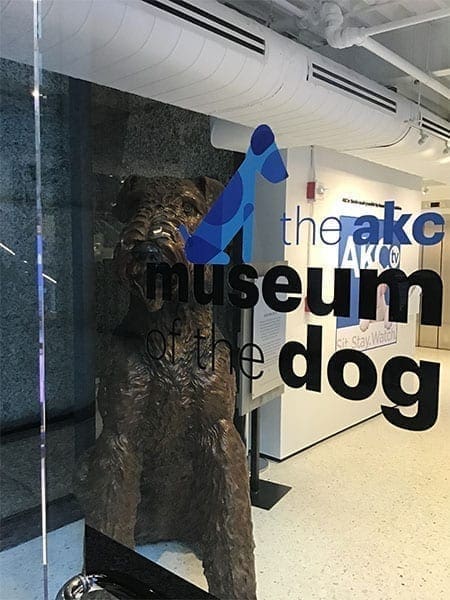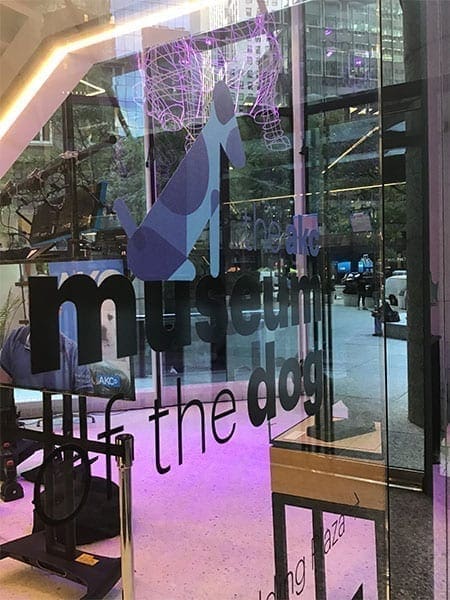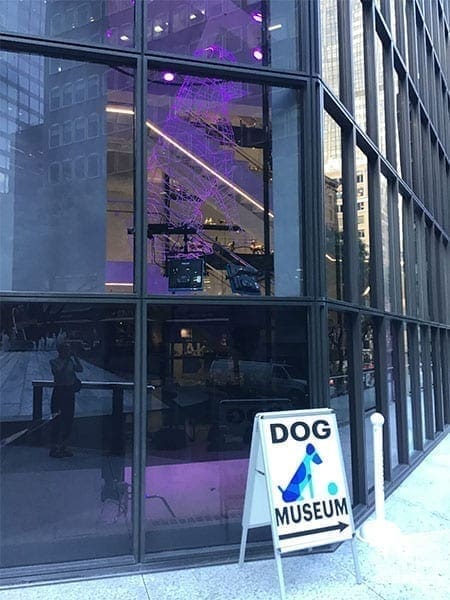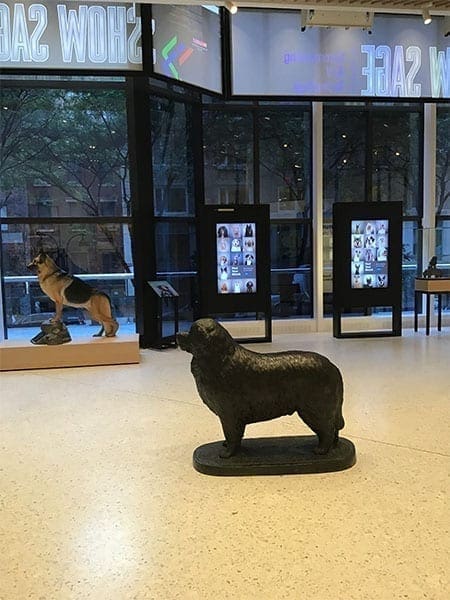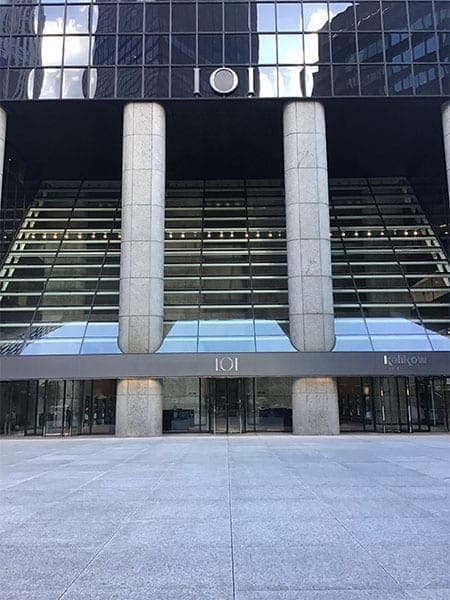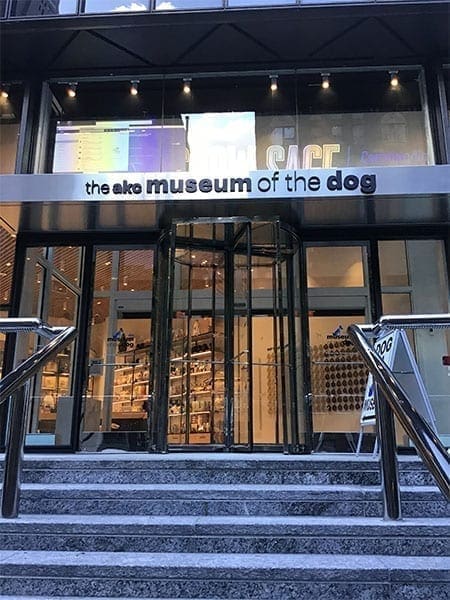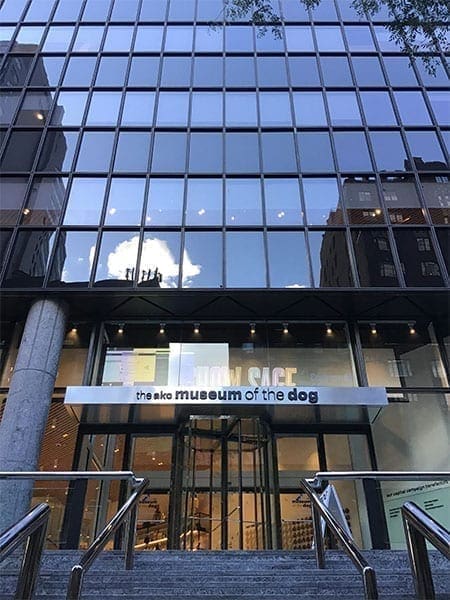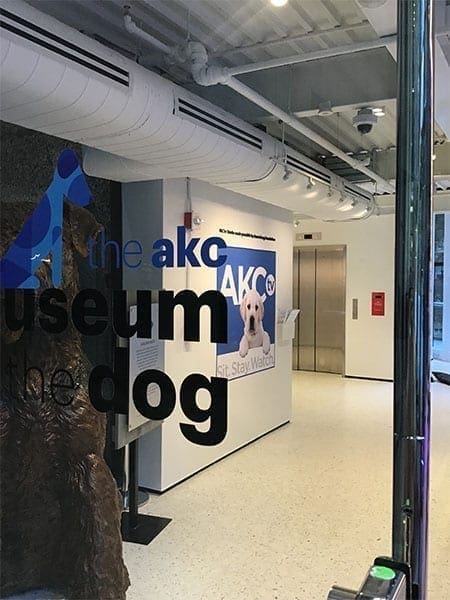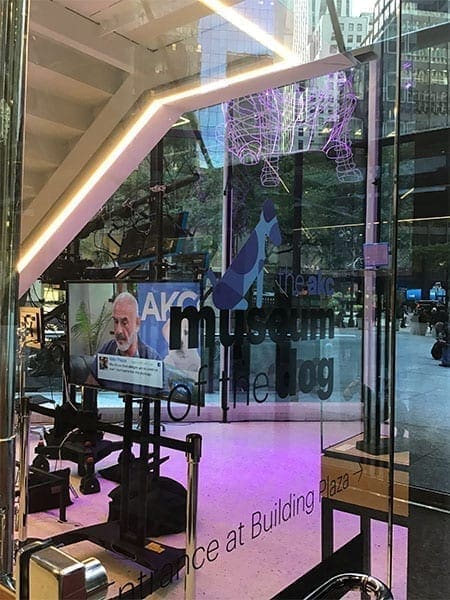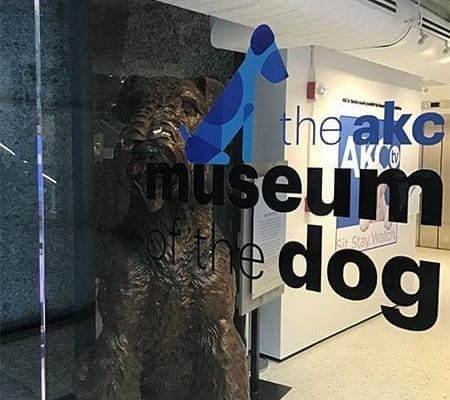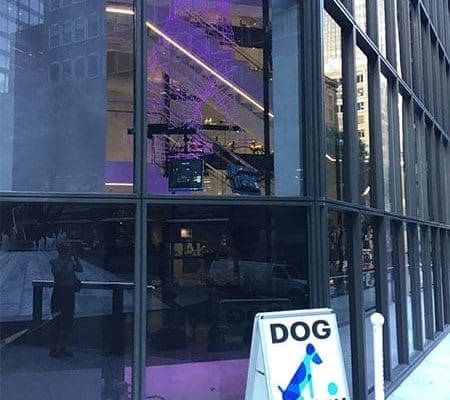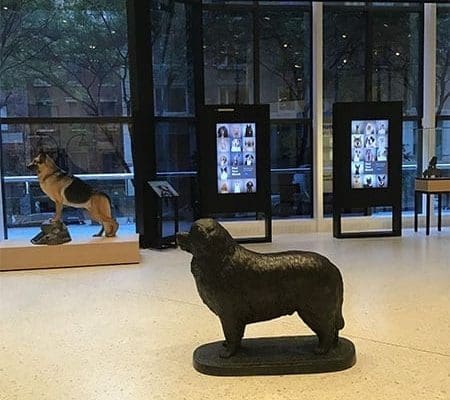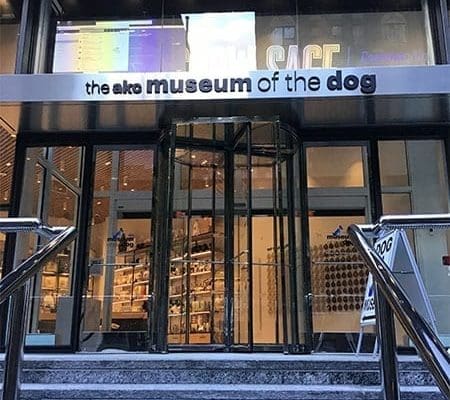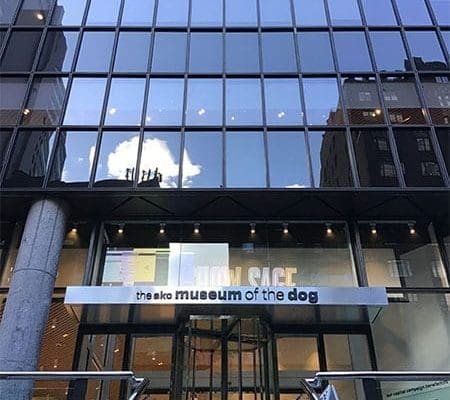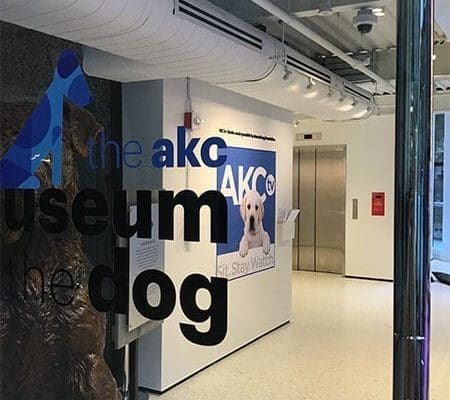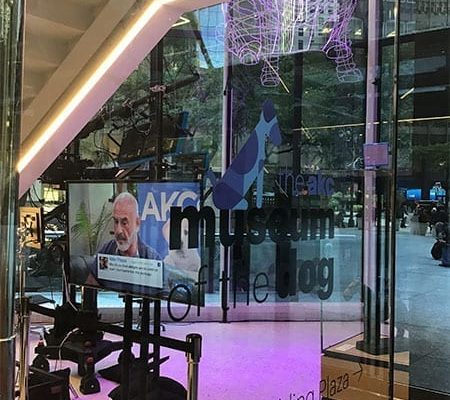In AKC We Trust
The American Kennel Club (AKC) is the world’s brand name authority on dogs. It has such credibility that a holding company licenses the AKC name to sell AKC-branded pet insurance, much the same way the AARP sells its endorsement to United Healthcare to brand its Medicare insurance.[i][ii]
However, a three-month investigation by The Canine Review found that the go-to authority on dogs is designating thousands of breeders as “Breeders of Merit” without any prerequisite onsite inspection, even as the AKC assures the public on its website that it considers them “the most conscientious and most committed breeders.”[iii]
An animal cruelty case in Mississippi five years ago involving an AKC Breeder of Merit offers the most egregious of the five examples that The Canine Review found of breeders who have enjoyed Breeder of Merit branding but clearly fall short of the AKC’s promise that they are the “most conscientious and most committed breeders.”[iv]

We consider [Breeders of Merit] the most conscientious and most committed breeders[v] .”
The AKC does not limit its promises of quality control to Breeders of Merit. On its website, there is a large section dedicated to the AKC’s “Inspections and Compliance” department, describing how inspectors conduct oversight of the general AKC-registered population:
“The AKC is the only purebred registry in the United States,” the website says, “with an ongoing routine kennel inspection program. The AKC has a dedicated team of field agents…”
However, the AKC’s business model and simple math reveal that terms like “routine” and “thorough” are misleading. In fact, even if only the 11,000 Breeders of Merit were subject to inspections, “routine” and “thorough” would be a stretch, as The Canine Review’s examination will show.
Here’s how the AKC’s gold standard Breeder of Merit Program is described on its website:
“Here at the AKC, we believe in honoring responsible breeders who have gone above and beyond on health issues, temperament, and genetic screening, as well as to the individual care and placement of puppies in responsible homes. That’s why we started the AKC Breeder of Merit Program: To give breeders a way to prove their dedication to preserving breed characteristics and producing healthy, well-socialized puppies. We consider them the most conscientious and most committed breeders.”
The oldest, largest, and most prominent dog registry in the world, the AKC attracts about 2 million visitors every month to its online Marketplace.[vi] There, they can use the AKC’s “Puppy Finder” to search for AKC-registered puppies and breeders, including the approximately 11,000[viii] AKC “Breeders of Merit” who all supposedly meet the AKC’s requirements.[ix] The AKC’s credibility is such that, according to the AKC Board of Directors’ published minutes of a November 2016 meeting[x], “[AKC.org is] the number 1 content site among all dog sites.”[xi]
However, The Canine Review has found that the world’s authority on dogs is making promises on its website about its quality controls that it cannot possibly be keeping. For example, the AKC promises visitors to the Marketplace that all puppies listed “receive health care, good nutrition, socialization, and love from day one” because all breeders listed “are subject to routine kennel inspections….”[vii]). Yet the math behind the AKC’s business model, explained in detail below, makes such quality controls impossible.
Promises Made On AKC's Website: Click to view in full-scale
- AKC PuppyFinder: Inspections, Inspections, Inspections
- AKC Website: Promises About Quality Controls
- AKC, "Inspections & Compliance"
- AKC's Care and Conditions of Dogs Policy. When AKC Inspector Thomas greenlighted Breeder of Merit Lynne Hackney in 2014 in his AKC Inspection, he certified that she was in compliance with this policy.
The AKC’s director of inspections and investigations, Marcus Bach, told The Canine Review that this team of inspectors, who are charged with conducting “routine” and “thorough” inspections, has only ten AKC inspectors, including himself. In theory, this team of ten inspectors is responsible for any breeder who registers a litter with the AKC – – not just the 11,000 Breeders of Merit. AKC spokeswoman Brandi Hunter told The Canine Review that there are about 138,500 active, unique breeders as of November 2019 who are subject to AKC inspection, including the 11,000 Breeders of Merit. Ms. Hunter also said that the inspectors work about 300 days per year (there are about 240 business days in a calendar year). This means that the ten AKC inspectors would each need to conduct at least 13, 850 inspections per year – – or 46 inspections per day – – for all 300 days for all breeders with AKC-registered litters to be inspected annually.
Ms. Hunter explained that although 138,500 is the total number of breeders subject to inspection, the breeders most likely to be inspected and who take top priority for AKC inspectors are higher volume breeders producing six or more litters per year. That amounts to 5% of all breeders, or 6,925 out of the 138,500, Hunter said.
Even that more modest number would be daunting for the AKC staff. Inspection chief Bach told The Canine Review that his team conducts 3,000 inspections per year, on average (or 300 inspections per inspector per year). That would mean that even assuming that only the highest priority category of breeders is subject to inspection, those breeders could only expect to be inspected once every 2.3 years. And all of the other 131,575 breeders, including thousands of Breeders of Merit, would never be inspected at all.
Similarly, with only ten inspectors on its payroll, it would be impossible for even the most select category of breeders subject to inspection — the 11,000 Breeders of Merit — to be ‘routinely’ inspected, as the AKC’s website promises. If only Breeders of Merit were subject to inspection, those breeders could expect an inspection an average of every 3.6 years.
In the Mississippi case, Lynne Hackney, the owner and AKC Breeder of Merit in possession of 70[xiv] dogs, most of them purebred Australian cattle dogs, was arrested and charged with animal cruelty only eight days[xv] after an AKC inspector visited the breeder’s property and issued a report saying everything was up to par, thereby steering the AKC’s dog-loving followers to an unscrupulous breeder who neglected the health and well-being of the dogs in her care.
Crates and cages in Mississippi
In October of 2014, Judy Wheaton, the director of the Pearl River County SPCA in Picayune, Mississippi, received a call from local police. They told her that they were seizing dozens of dogs[xvi] from a local breeder and needed the SPCA to take them in.[xvii]
Most of the dogs seized were purebred Australian cattle dogs and were found in crates with “at least two if not more inches dry or wet feces if they had been urinated on,” in two unventilated sheds on the property, Wheaton recalled in an interview with The Canine Review. Others were found in cages under the porch. “It was horrible conditions,” she said. “I wished I’d had rubber boots to walk through all the poop and crud that was on the floor in the shed.”
The owner and breeder of the 70[xviii] neglected dogs who were ultimately seized was AKC Breeder of Merit Lynne Hackney. The Canine Review was not able to reach Hackney for comment. Calls placed to the phone numbers listed for Hackney did not go through and emails did not reach the recipient. Michael D. Wilson, the attorney who represented both Hackney and her husband at the time, spoke with The Canine Review but could not provide current contact information for Hackney, he said, because he erases clients’ files that are more than two years old.
The Pearl River County Sheriff’s Office provided The Canine Review with its incident report[xix] in which Lieutenant Joe Quave described the dogs’ condition and environment before they were rescued:
Photos on file from the Pearl River County Sheriff’s Office: Dogs belonging to then AKC Breeder of Merit Lynne Hackney at the time they were seized and rescued in October 2014.
Yet, what seemed to anger the animal rights world most was the fact that AKC inspector John M. Thomas had visited and inspected that same property along with Lieutenant Quave just days before the dogs were seized. [xx]
In his inspection report, Thomas indicated that the now infamous AKC Breeder of Merit was in compliance with AKC regulations, including its “Care and Conditions Policy[xxi],” and Hackney passed the AKC’s inspection. There were no notes of concern or suggestions for follow-up in the report.
Six days after AKC Inspector Thomas certified Hackney’s kennel as in compliance with AKC’s “Care and Condition of Dogs” policies, Lt. Quave returned to Hackney’s home “to conduct a welfare concern,” he wrote in the Pearl River County Sheriff’s Office Incident Report:
On 10/08/14 at approximately 1800 hours I conducted a welfare concern on the dogs at 2202 East Canal Street Picayune, MS,” the officer wrote in the incident report. “There were 27 dogs in crates in the large shed…There was a large pile of dog hair and feces that Miles [Hackney’s husband] had raked in the large shed. The concrete floor was stained with dog urine and dog feces. Neither of the sheds had windows or ventilation. Under the porch there were dogs in two crates…There was a total of 58 dogs outside and 4 dogs inside….”
More surprising, the AKC stood by the inspector. “The kennel was found to be in compliance by both the AKC inspector and the police officer, who also determined not to take action, later stating to AKC that the kennel was clean and no dogs exhibited thinness or physical ailment,” the AKC’s press shop said in a statement in 2014. Brandi Hunter, AKC’s current spokeswoman, reaffirmed the 2014 statement in a November 2019 interview with The Canine Review.
The AKC Breeder of Merit was arrested and charged with several misdemeanors, including animal cruelty. In the end, Hackney and husband Miles Allen pleaded guilty to animal cruelty and other misdemeanors, avoiding a trial. According to the Picayune Municipal Court, Hackney and her husband were each fined $3566.60.[xxviii]
Efforts to get comment from John M. Thomas, the AKC inspector who inspected the Hackney facility days before the police returned to “conduct a welfare concern” and subsequently obtained a warrant for Hackney’s arrest were not successful. Phone calls to a number listed for “John M. Thomas” and “Connie L. Thomas” (his wife) were not answered or returned. The Canine Review also attempted to reach Mr. Thomas through Facebook, sending a private message. The message was not answered. In early November, just before press time, The Canine Review placed three more calls to the listing for John M. and Connie L. Thomas. The calls were not answered. The Canine Review also attempted to reach Mr. Thomas and his wife through Facebook again. The messages were not returned.
Animal welfare groups, activists, and people who had bought puppies from Hackney expressed anger online. A Facebook page called “Bleu Moon Cattle Dog Rescue”[xxii] formed, with people posting photos of Hackney’s dogs standing in their own filth just before the rescue, including photos of AKC champion dog “Wild Bill,” whom Hackney had acquired.
More anger was directed at the AKC and its inspector for passing Hackney days before the dogs were rescued: “The fact that an AKC inspector could go on the property just days before Wild Bill and the other dogs were found in squalor and hand the owner’s facility a favorable review tells us so much about what’s wrong with the AKC,” Wayne Pacelle, then president of the Humane Society of the United States, wrote in a 2015 blog post.[xxiii] “In fact,” he continued, “at one point, the AKC granted its highest honor, the Breeder of Merit status, to [Hackney], the owner of Bleu Moon Cattle Dogs.” (Pacelle resigned as chief executive of the Humane Society in 2018 amid several accusations of sexual harassment.)
Marcus Bach, the AKC’s current director of inspections and investigations, defended Thomas, the inspector, and the AKC, in a telephone interview with The Canine Review:
I can’t really speak to what kind of decisions were made at the time because I wasn’t the supervisor then,” he said. “What I will say is that on the day [Thomas] did his inspection, there was a lieutenant from the local sheriff’s department that was on that inspection, and he also noted that the dogs appeared healthy and appeared good on that day.”
Leaving aside the condition of the dogs, or the caseload of the AKC’s Inspections Department[xxiv] or how Thomas could have missed the signs of neglect and abuse, there is one plausible explanation for why the appearance of the facility did not concern AKC Inspector Thomas (or why Thomas indicated that the facility appeared “clean” in his report) when he visited on October 2: Hackney, the Breeder of Merit, had been told to clean it up just the day before. In the Pearl River County incident report[xxv], Lieutenant Joe Quave wrote that he had visited the property on Oct. 1 and saw a “moderate amount” of feces and urine. He told the breeder, Hackney, to clean it up.[xxvi] After looking things over the next day with the AKC inspector, Lieutenant Quave wrote that the buildings “were much cleaner from the previous night.”[xxvii]
“These animals were happy just to have a human hand on them,” Sarah Prather, a veterinarian who says she examined and treated most of the dogs seized from Hackney by local police, told The Canine Review. Prather says that she has no idea how the AKC missed what she saw: “This was definitely an egregious example of neglect, at least, on a level that I’ve not seen before or since,” she said in an interview. “It took me a while to figure out that, like, the things I was seeing on their faces were actually ammonia burns [from urine].” [The neglect] “was long-standing,” she added. “Those older animals, once we were examining them, were happy just to have a human hand on them but the younger ones that had been bred there, you could tell they were very afraid and pretty much feral.”
AKC president and CEO Dennis B. Sprung, along with executive vice president Mark Dunn, declined multiple requests to discuss the Mississippi case, including what, if any, policies were changed or implemented regarding inspections after what had occurred in Mississippi.
The Canine Review also asked AKC executives to discuss AKC’s February 2015 published Board Minutes[xxix] and “enhancements to the criteria used to identify inspection candidates based on the number of dogs listed in an individual’s recorded ownership.” Asked what specifically those “enhancements” were, what prompted the “enhancements,” and if there was any debate over whether to add staff to cover the current inspections rather than adding criteria to the workload of the limited staff, Sprung, Dunn, general counsel Jay Waks, and chief financial officer Joseph Baffuto all declined to comment.
AKC spokeswoman Brandi Hunter declined to discuss questions about operating costs or any document referred to in published board meeting minutes. In response to several of those questions, Ms. Hunter would only say, “There will be no divulgence of marketing plans, internal case reviews or operating costs that are not already publicly available. Those are internal documents and are confidential.”
There will be no divulgence of marketing plans, internal case reviews or operating costs that are not already publicly available. Those are internal documents and are confidential.”
However, Breeder of Merit program administrator Krystn Messer told The Canine Review, when asked if making on-site inspections for breeders a prerequisite for admission into the Breeder of Merit program had ever been discussed, that inspecting “all of them” would not be “cost-effective” and “impossible” given the number of breeders. And Messer was only referring to the 11,000 active Breeders of Merit.
AKC executives also declined comment when asked in an email if, when faced with a case like the hoarding case in Mississippi (in which the person arrested and charged was an AKC Breeder of Merit at the time), it concerned them that the AKC could be steering prospective dog owners who use the AKC’s website and Marketplace to search for puppies toward breeders who neglect the health and well-being of their dogs, which, in turn, could impugn the AKC’s name and brand to such an extent that an AKC registration becomes meaningless. The executives also declined to comment when asked if they agree that, intentionally or unintentionally, the AKC makes misleading and in some examples, inaccurate claims about some breeders just by the suggestion that they are in compliance with the “Care and Conditions” policies, health testing their litters, etc.
However, AKC spokeswoman Brandi Hunter wrote in an email:
“We do not mislead the public in to believing that all breeders are inspected in every year. The Breeder of Merit Program is not a consumer based program; it is meant to highlight breeders who have contributed to the furthering and preservation of the breeds. Yes, we acknowledge that not all breeders get it right, however, we do our best to ensure the health and well-being of dogs and take action whenever animals are endangered or breeders are not compliant according with the Care and Conditions of dogs policy.”
Dogs without heat or shelter in Pennsylvania
AKC Breeder of Merit Donna Stanley and husband Jonathan Stanley co-own Sterling Kennel, also known as Endless Mountain Labradors, in rural northeastern Pennsylvania. In early 2017, Pennsylvania inspectors from the state’s Bureau of Dog Law Enforcement found that Endless Mountain was operating commercially without a commercial license. That finding triggered a tumultuous two years of inspection failures. Pennsylvania inspectors found multiple problems with the Breeder of Merit facility, both in 2017 and in 2018. According to their inspection reports, these included inadequate water, shelter, lack of bedding, insufficient space, and damage to the structure. The most disturbing violations pertained to the lack of physical space for the dogs:
“Wardens viewed primary enclosures that housed dogs that would not allow each dogs to lie down stretched out and not touch the sides of the enclosure.
This warden directs the kennel owner to take the following action(s): Provide space to allow each dog to turn about freely and to stand, sit and lie in a normal position. The dog must be able to lie down while fully extended without the dog’s head, tail, legs, face or feet touching any side of the enclosure.
Act 207(h)(2)(xii)
Wardens viewed primary enclosures that did not have an interior height that was six inches higher than the dogs head while in a normal sitting position…Wardens viewed primary enclosures that did not have the square footage necessary to house the dogs enclosed in them…”
– Pennsylvania Dog Law Enforcement Office Inspection Report, Sterling Kennel: April 10, 2018
Wardens viewed primary enclosures that housed dogs that would not allow each dogs to lie down stretched out and not touch the sides of the enclosure.”
“For the Discriminating Labrador Lover,” the Endless Mountain website tagline says. “Outstanding English Labrador puppies that are family and house raised,” the website promises. “Flawless, low-key temperament. Selectively bred with careful genetic screening.”
Visitors to the Endless Mountain website will find no shortage of references to Ms. Stanley’s AKC Breeder of Merit status as they are inundated with images of a large brick estate home surrounded by “lush, wooded acres,” as well as images of Ms. Stanley, an attractive woman with fair skin, blue eyes, and long blond hair, posed with several puppies.
Asked about the licensing violation and other violations, Jonathan Stanley told The Canine Review in a November 2019 email that the kennel had only exceeded the state’s limit on the number of dogs a non-commercial breeder can sell (or “transfer”) without being required to apply for a commercial kennel license by just one dog. According to the March 2017 Pennsylvania inspection report of Sterling, the Stanleys sold 65 dogs in 2016, which would have put the kennel five dogs over the limit.
In September 2019, Ms. Stanley wrote in an email to The Canine Review when asked about the violation for acting commercially without a commercial license, and other violations:
2017-2018 was our switch from private to commercial at the request of Harrisburg. So they had to “fail” us as a private kennel in order to then force us to be commercial with a timeframe for the transition. Nothing was “wrong”. They gave us a very reasonable time frame and everything to get all the changes in and we did it! So happy with it! Its like we went from an A+ kennel to an A++ and we were told we can brag about our new status.:) It means we have to meet the highest standards possible. We like that.:)”
Either way, Donna and Jonathan Stanley suddenly found themselves scrambling to apply for and then maintain a commercial kennel license. In an email with Dog Law Enforcement director Kristen Donmoyer, Jonathan Stanley wrote, “We are confident and optimistic that we will be able to get things in order in a very reasonable amount of time…We will embrace this change and we welcome the opportunity to raise the bar.”
As a result of suddenly being held to commercial kennel standards, the Breeder of Merit facility was slammed with violation notices in 2017 and in 2018. Some violations were more concerning than others. In April 2018, the Breeder of Merit was cited for not providing any shelter from the cold for dogs in outside kennels:
Wardens observed that most of the dogs were being kept outside in 32-33 degree temperatures with no access to heat or a shelter suitable to preserve their body heat.”
Endless Mountain Labradors apparently doesn’t match the level of animal cruelty discovered in Mississippi, but is an example of a breeder who, at times, has fallen short of the AKC’s “most committed, most conscientious [breeders]” description according not only to negative reviews from clients but to Pennsylvania inspectors.[xxx] [xxxi] [xxxii][xxxiii] [xxxiv]
In March 2017, in the same report in which the inspectors cited Endless Mountain for operating commercially without a commercial kennel license,[xxxv] the inspectors wrote that they observed frozen, standing water in several outdoor exercise pens. At the dog houses or kennel, there were “chewed sharp edges” and openings with “exposed, unsealed wood.”
How the Stanleys reacted to the accountability was as notable as the citations. Through a public records request, The Canine Review obtained emails exchanged between officials in Pennsylvania’s Dog Law Enforcement Bureau, part of its Department of Agriculture, and Jonathan and Donna Stanley in 2017 and 2018:
In one instance, Mr. Stanley accused Pennsylvania inspectors of killing a puppy by unintentionally infecting it with Parvo. In another, Ms. Stanley accused inspectors of infecting their dogs with kennel cough and causing an outbreak. In an email written from Jonathan Stanley’s email account but signed by Ms. Stanley dated June 19, 2018 to Kristen Donmoyer, the Dog Law Enforcement Bureau director, Ms. Stanley wrote:
“Very very very very upset to again be experiencing an infection brought in again from the warden’s inspection. Again, exact days of incubation period from the day they were here until the outbreak according to my veterinarian. And I can can proudly say in 32 years we have never experienced a kennel-wide outbreak of kennel cough. You are welcome to talk to the two veterinarians we use to prove this fact. No one was in or out of our kennel, and there was no way it could have come in – – just like the horrible parvovirus brought in – – I still cry every time I think of the poor suffering of that puppy…”
Donna and Jonathan Stanley declined to speak about the inspection reports, or anything else related to the operation of Endless Mountain, including questions about where their puppies are born, raised, and who primarily cares for the puppies and dogs. When asked by email whose house “house raised” refers to, both declined comment.
“We’ve seen other breeders friends harassed by people, so we are all very careful who we allow speak with us,” Donna Stanley explained in an email. “We are all well armed by a private legal team…We don’t know why we would want to talk to a reporter,” she added. “We know how that gets twisted every day. We all see the news and how sick that is. We have not given you permission to interview or talk about my dogs or kennel.”
AKC CEO Sprung declined comment when asked if AKC had ever conducted an inspection of Endless Mountain Labradors; spokeswoman Hunter would only say, with measured humor,
Oh, no. We don’t comment on Endless Mountain Labradors.”
[****Update: Following publication, AKC spokeswoman Hunter provided the following statement: “I was not laughing at them and I actually laughed at you STILL TRYING. When I told you we would not comment on any inspections outside of Hackney.”*****]
Although Endless Mountain’s website promises “family and house raised” puppies, neither Ms. Stanley nor Mr. Stanley would comment when asked about day-to-day operations at Endless Mountain, where puppies are whelped, raised, or who is primarily responsible for the care of the puppies and dogs. They declined to answer when asked whose “family” raises the puppies, as well as what “house” refers to.
But in the emails obtained by The Canine Review, the Stanleys submited an “Exercise Plan” to Pennsylvania inspectors signed by two veterinarians dated June 23, 2017 which states:
“An adjoining apartment in the kennel is provided for a live-in staff person who has 24/7 awareness and attention toward the kennel. Their additional staff people feed two times a day, and another staffer picks up after the dogs every day at a different time. Additionally, owners or the handyman are in the kennel every day at various times. There is constant traffic and observation of the dogs on a daily basis between 6 people whether the dogs are in their primary enclosures or in their play yards.”
The document says that a total of “6 people” including the “owners” care for the dogs. The Canine Review asked the Stanleys if that number was still accurate and if it would therefore be accurate to say that they have a total of four employees who are responsible for the dogs, including at least two live-in employees who are primarily responsible for the dogs. The Stanleys declined comment. When asked if the dogs are raised by them in their home, or by live-in staff, the Stanleys would not comment. When asked how many hours per day or per week they each spend with the dogs, the Stanleys would not comment.
Beyond the worrisome reports from Pennsylvania inspectors, there are a handful of stinging reviews from Endless Mountain clients (it is important to note that the vast majority of the kennel’s online reviews are positive).
One of those online reviews was written by apparel brand executive Denise Lockaby of Concord, Massachusetts[xxxix], who says she and her husband, John Battista, purchased a yellow Labrador puppy for her twins whom they named “Rosie” from Donna Stanley in 2006. Lockaby was able to offer details that seem to back up her story that she had purchased a labrador from Ms. Stanley [a purchase which she says was likely made under her husband’s name].
Lockaby recalled an unpleasant and “stressful” experience when she and her husband drove “nine hours with two six-year old’s to pick up our new puppy. My husband and I knew something was not right, we should have just driven away … but in the moment it’s so hard to believe that their amazing website, with the accolades and stunning looking dogs is all a sham,” she recalled in an email.
In telephone and email interviews, Lockaby asserted to The Canine Review that Ms. Stanley gave her family a single 30-minute window:
“It was very much, ‘You come between this time and that time, Lockaby recalled. “’And if you can’t come between this time and that time, I’m not going to be able to give you the dog, because I have a lot of dogs going out. So, you must make your time,’ which was stressful for us because we were driving so far…”
The puppy they were given – the puppy they were told was theirs – did not look anything like the pictures of the mother and father they had been sent, she said. But the problem she says she noticed almost immediately was with Rosie’s temperament.
“We joke that she was on the spectrum, because she just wasn’t, she wasn’t right” Lockaby said. “She just wasn’t engaged. Eye contact wasn’t there, the responsiveness to voice. She was sweet, but there was something off about her right from the day we took her home.”
Rosie’s temperament issues worsened, Lockaby said. “It got to the point where she was beginning to growl and lunge at people because she was so fearful. And that was incredibly concerning to us.”
Then, at seven years of age, Rosie died of bone cancer. Lockaby said she did not call or write to anyone at Endless Mountain Labradors about any of the problems with Rosie, she says, because she had seen Ms. Stanley verbally attack others who posted complaints online. Nevertheless, she says that she ultimately decided to write a scathing Yelp review. “I felt strongly enough that I [eventually wrote a] review many years after we got [Rosie],” she recalled. “I felt strongly that people needed to know what my experience was.”
When asked about Denise Lockaby’s account and the problems she described with her dog, Ms. Stanley declined comment except to dispute her accounting of the amount of time Ms. Stanley provided clients who come to take home their new puppies. Ms. Stanley suggested that clients have the option of taking up to three hours and that there was no truth to Ms. Lockaby’s account of the 30-minute window appointments.
None of this is to suggest that there are no happy Endless Mountain clients. To the contrary, on Endless Mountain’s Yelp page, the majoriy of the reviews about the kennel are positive. There are more than 50 glowing five-star reviews, thanking and praising Endless Mountain, and Ms. Stanley. More important, Pennsylvania state inspectors have not cited Endless Mountain for any violations since the April 2018 report.
Unfed dogs in Nebraska
Endless Mountain’s Donna Stanley is hardly the only example of a highly regarded AKC Breeder of Merit who has been censured by inspectors (though not by any AKC inspection report that the AKC was willing to provide). AKC Breeders of Merit (until 2016) Mitchell and Alisa Pesek of Staunton, Nebraska were flagged by Nebraska Department of Agriculture state inspectors in 2014, 2015, and in 2016, at which point their “Breeder of Merit” status was finally removed.
In February 2014, the then AKC Breeder of Merit failed to provide adequate food and water for the dogs, according to Nebraska inspectors:
Dogs must be fed at least once each day sufficient quantity and nutritive value to maintain the normal weight of the dog. Need more employees to care for dogs. One female collie located in southwest pen and one female collie located in northeast pen need to be examined by a veterinarian.” – Nebraska inspection report, 2014
Alisa Pesek, the then Breeder of Merit, declined to comment about the inspection reports or the Breeder of Merit program. Four phone calls to the number she lists on her website were not answered, and four messages left with that number were not returned. The Canine Review also attempted to contact Pesek through a listed email address. No message was answered.
In March 2014, the Peseks were cited, again, by inspectors for multiple violations. “Outdoor dog shelters must have clean dry bedding and provide a wind break at all shelter entrances.” The inspector added, “All dogs must be watered not less than twice daily. No water available for all dogs.”
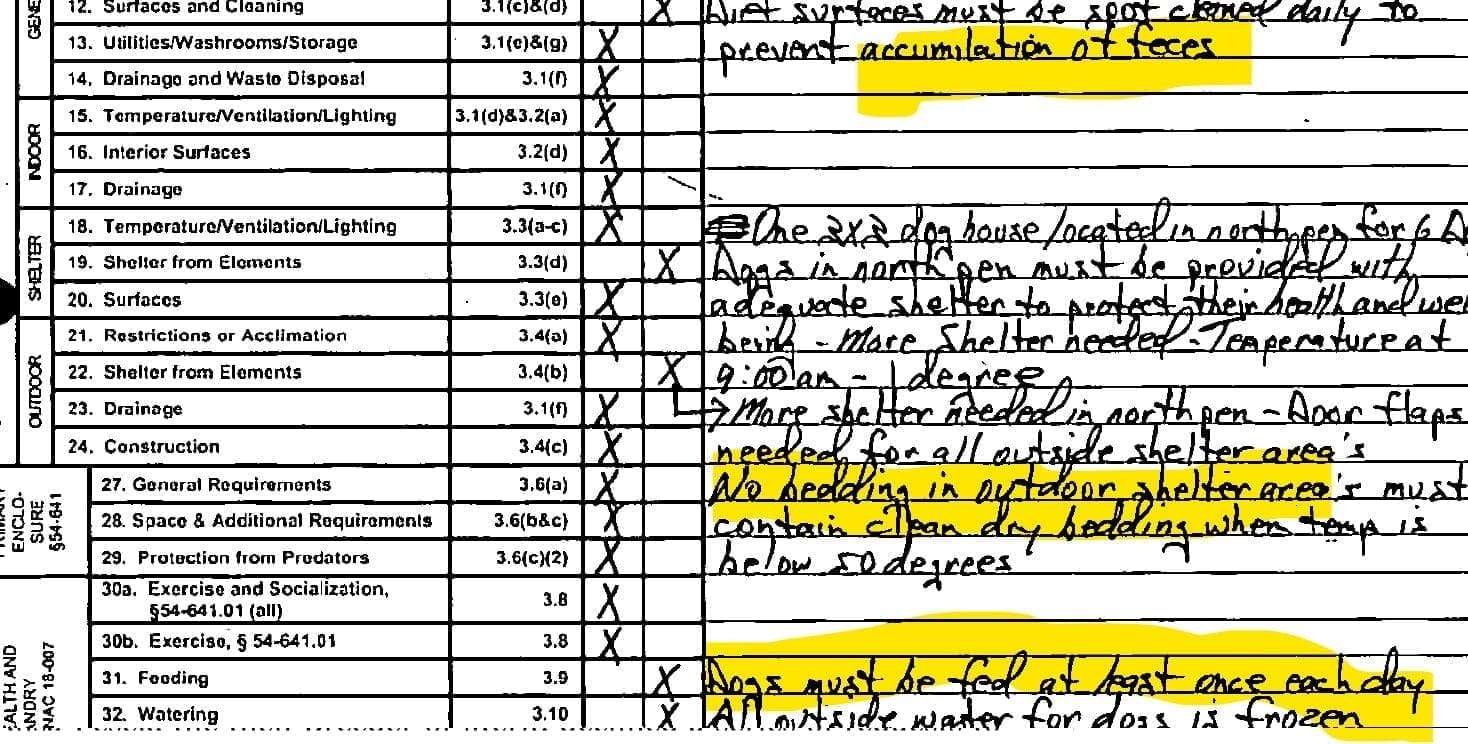
The AKC’s executives declined to speak about the Nebraska breeder or if and when she was inspected by the AKC.
New Jersey 2019: 188 dogs rescued, 22 found dead at AKC champion breeder home
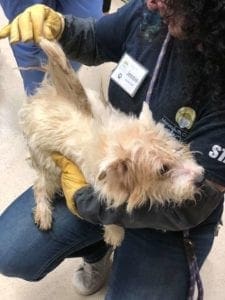
Last June, the AKC found itself on the defensive again when 188 Parson Russell Terriers and dachshunds had to be rescued from the New Jersey home of AKC champions and 2009 Westminster Kennel Club Dog Show “Best in Breed” breeders Martin Strozeski and Marcia Knoster. “Best in Breed” refers to a designation at the AKC-governed Westminster Kennel Club Dog Show, which is arguably the most prominent dog show in the world.
Four phone calls and messages placed to a number listed for Strozeski and Knoster were not answered or returned.
AKC spokeswoman Brandi Hunter told The Canine Review that Knoster had never been designated as a Breeder of Merit. Ms. Hunter also said that 2013 was the last year that the “Best in Breed” couple registered a litter with the AKC (just one litter that year).
Nora Parker, a communications officer for St. Hubert’s Animal Welfare Center, where the 188 dogs were initially taken and triaged before dispersing to different shelters, told The Canine Review in September that the 188 dogs were doing well, for the most part. “For the majority of them [the 188 dogs], it’s ended happily,” Parker said, adding that although many of the animals needed socializing and behavioral work, no animal was not “curable and manageable” from a medical standpoint. “Many of them, not all, but a lot of them were confined to small quarters and needed a lot of social help and TLC to get them comfortable with people,” Parker explained.
But according to the New Jersey criminal complaints obtained by The Canine Review, 22 dogs were also found deceased or died soon after they were found on the property. Specifically, the criminal complaint alleged that Strozeski and Knoster failed to provide 22 dogs with necessary care “thereby resulting in their death” and also failed to provide 188 dogs rescued with necessary care, resulting in bodily injury.
AKC spokeswoman Hunter explained that because 2013 was the last time the AKC had heard from the couple, and only one litter had been registered during that year, there is no reason why the couple would have been inspected within five years. “Volume and activity level,” Hunter said, are what primarily determine who gets inspected.
Indiana 2019: AKC Breeder of Merit’s 53 German shepherd dogs living in outdoor, wire-fenced kennels
There are more troubling examples among the AKC’s estimated 11,000 Breeders of Merit, including a breeder whom The Canine Review happened upon during an assignment meant to be a routine Canine Review breeder profile: German Shepherd Breeder of Merit Rachel Clark of Arcadia, Indiana. When The Canine Review visited and profiled Clark and her breeding business in June 2019, the majority of Clark’s 53 adult dogs living in outdoor wire-fenced kennels. Worse, one of the puppies from the three litters on site died during The Canine Review’s visit. (It was The Canine Review’s reporter, not Clark, who first noticed that the puppy was ill.)
Clark had been flagged by local press earlier in 2019 after neighbors noticed that her dogs were living outdoors in sub-zero Indiana winter temperatures.
A few weeks after The Canine Review interviewed Clark at her kennel, Clark told The Canine Review in an update that the AKC had sent someone to conduct an inspection, which she passed.
“Raebark has been inspected a number of times,” Clark told The Canine Review in an email in August. “Usually I get a 24 hour notice. Tuesday I got none. Someone turned me in. The complaints are as follows:
1. Cobwebs in the garage.
2. Holes need filled in dog pens and level pens.
3. Need paint on chain link fence to make it look better.
4. Individual dog records need updated. (I would have had that fixed if I had had 24 hour notice.). I have the records. It just has to be recorded the way AKC likes.
5. At town, he wants part of the deck pulled up and cleaned underneath.
6. Weeds out of dog pen. I can’t get a mower in there. I had sprayed them with Roundup. I’ll string trim them. It’s not safe for me to do that, but I will anyway. (Holes in ground make it unsafe for me while using my string trimmer.)
7. Paint on chain link fence.
I think that’s a complete list. No complaints on condition of dogs. Puppies were clean when he came. Puppies aren’t selling.”
The Canine Review asked AKC CEO Dennis Sprung to explain how a breeder can be written up for so many different violations and still pass inspection. Mr. Sprung declined to comment, as did spokeswoman Hunter.
The American Kennel Club is the oldest, most prestigious dog registry in the world, and in recent years, the Manhattan-based non-profit’s branding power, prominence, and operating budget have surged. The public’s trust in the AKC brand is such that the organization’s single biggest revenue source is from fees people pay the AKC to “register” a dog or litter of puppies, and to obtain the dog’s AKC registration certificate. Breeders pay $25 to register each litter, and an additional $2 per puppy. The starting cost for a new owner to register a dog with the AKC is $34.99. For extras like a certified three or five generation pedigree of your dog, the cost increases.[xl]
In 2018, these registration fees totaled almost $33.5 million, about a third of the AKC’s total $93 million in revenue, according to the organization’s 2018 annual report.[xli]
The Breeder of Merit program seems to have been developed with good intentions, and with little or no focus on the nexus between breeder recognition programs and registration revenue. It was launched in October of 2010 as a pilot program and officially started enrolling breeders in early 2011. Unlike the effusive description the AKC now publishes on its website about Breeders of Merit, the language from the Breeder of Merit program’s founding days is more modest: “Breeder of Merit honors core AKC breeder-exhibitors, recognizing their years of dedication and commitment to their breeding programs and their success in AKC events.”
The designation was immediately praised by breeders as a way to distinguish their work – in other words, as a branding opportunity. As one breeder put it in an endorsement she allowed the AKC to include in its 2011 Annual Report: “I appreciate the AKC’s emphasis on responsible breeders. I think it gives the public another way to evaluate the quality of breeders in their community. The Breeder of Merit designation provides me with an acknowledgement from the AKC that is very gratifying.”
Apparently, the AKC soon realized that brand distinctions are worth a lot to those who get them – and could be worth a lot to those who award them. By 2015, the same year the AKC rolled out a redesigned website, AKC Board Meeting Minutes indicate that the Breeder of Merit program was becoming a revenue tool:
CEO Dennis Sprung and other AKC officials declined comment when asked to discuss the Marketing Plan cited in the July 2015 Board Minutes. Brandi Hunter, the AKC’s spokeswoman, provided an answer presumably intended to address several questions, including our questions about an apparently top-secret Marketing Plan: “There will be no divulgence of marketing plans, internal case reviews or operating costs that are not already publicly available. Those are internal documents and are confidential.”
The way the program and its perks are paid for is through the requirement that breeders register the puppies in their litter, to make sure that they’re individually registered. So, it’s a bit of a registration [fee] drive also.”
— AKC Breeder of Merit Program Administrator Krystin Messer
In 2015, not long after the AKC’s embarrassing inspection oversight in Mississippi, the AKC announced in its Annual Report that it had “launched a fully-redesigned, mobile-optimized website…The new site allows us to upload continuous content, turning akc.org into the destination for training tips, canine health news, and more…AKC Online Breeder Classifieds was revamped into AKC Marketplace-a new [search] platform that allows us to better connect responsible breeders to potential dog owners.”[xlii][xliii] As a result of AKC Marketplace, prospective dog owners can now build detailed searches with the AKC PuppyFinder for AKC-registered puppies and breeders, including AKC Breeders of Merit.
This kind of expansion has become a running theme at the AKC in recent years. Last year, it moved its headquarters from its longtime home at 260 Madison Avenue to a newly remodeled, expanded space at 101 Park Avenue, a higher rent area one block south of Grand Central Station. The AKC’s senior leadership would not comment when asked about changes in spending as a result of the fancy new offices at 101 Park Avenue. Brandi Hunter, the AKC’s spokeswoman, also would not speak about 101 Park Avenue, or even provide The Canine Review with a media kit and official AKC photographs of the new offices. But the AKC’s 2018 Annual Report offers a full page of images of the new offices at 101 Park Avenue. “AKC history is represented throughout the offices,” the images’ caption says, “by masterworks from the AKC art collection, a glass-enclosed library room housing some 2,000 rare and antique volumes, and fine furniture pieces retained from past headquarters…”
Also in 2018, AKC launched AKC.TV, a digital network offering dog-focused programming, and moved its Museum of the Dog from St. Louis, Missouri, to Manhattan, to the same location of its new Manhattan offices.
However, resources to maintain quality control – the means necessary to ensure the integrity of its brand – do not seem to have been part of the expansion. According to its website, the AKC began inspections of breeders in the year 2000. As explained earlier, the AKC employs just ten full-time inspectors. Together, the ten inspectors complete an average of about 2900 inspections total each year, AKC head inspector, Marcus Bach told The Canine Review in an interview.
Brandi Hunter, the AKC’s spokeswoman, would not discuss operating costs or any detail about the AKC’s business model, but offered this statement when asked again about whether or not there had ever been any debate or discussion about putting more resources into the inspections department:
Our inspections program is consistently being evaluated, and resources are consistently being evaluated. We want to make sure inspectors are as effective as possible.”
Yet, as shocking as they are, the cases described above – from Mississippi to New Jersey to Indiana to Pennsylvania to Nebraska – are emblematic of the more important story. Which is that the AKC can have no idea whether this handful of cases — which made mostly local headlines, or were happened upon by The Canine Review during other reporting — represent one percent, or five percent, or fifteen percent, or fifty percent of the breeders they certify–or emblazon with AKC gold stars, in the case of those estimated 11,000 Breeders of Merit.
The numbers tell a story of an AKC management that has not devoted any amount close to what is required to fund the manpower necessary to inspect Breeders of Merit every year, or every five years.
AKC clearly has the resources, not only to move to a modern new headquarters in a high rent Manhattan district, but to compensate its executives handsomely. According to the annual Form 990 report the AKC must file to maintain its non-profit status for 2017 (the most recent year for which the AKC form is available publicly), AKC CEO Dennis B. Sprung’s salary that year was $844,520 along with almost $300,000 in other types of compensation. Two other AKC officials earned incomes above $500,000, and 32 total AKC employees earned above $100,000. Total front office compensation was $5.6 million.
At an average rate of 3,000 inspections per year, a breeder registered with the AKC could expect to be inspected about once every 46 years!
Again, there are only TEN inspectors on this team said to be conducting “routine” and “thorough” inspections. If we assume, generously, that each of the ten inspectors costs $150,000 in salary, benefits, and travel expenses, the total spent on all inspections would be just $1,500,000, barely more than CEO Sprung’s salary and other compensation. But those ten inspectors are responsible for inspecting about 138, 500[xlv] breeders who are subject to AKC inspection, including the 11,000 Breeders of Merit.
Head inspector Marcus Bach told The Canine Review that an average of 2900 AKC inspections are conducted across the continental U.S. each year (“about 2800 to 2900 inspections, somewhere just under 3000 a year,” he said) which means each inspector would be responsible for an average of 300 inspections per calendar year. In 2018, Bach said the AKC conducted just over 2600 inspections, or 260 per year per inspector. [xlvi]
Thus, with only ten inspectors on its payroll, it would be mathematically and physically impossible for all breeders to be “routinely” inspected. In fact, at an average rate of 3,000 inspections per year, a breeder registered with the AKC could expect to be inspected about once every 46 years (138,500 divided by 3,000)!
The AKC’s Breeder of Merit program administrator, Krystn Messer told The Canine Review in a wide-ranging phone interview, when asked about the issue of inspections and why they are not required for Breeders of Merit that, “If you look at the number of breeders, it wouuld be impossible for us to inspect all of them…They may not be someone who is at risk, or even should be…If they have a litter once every couple of years, inspection is really not cost-effective or is going to make an impact on dogs.”
But Messer, who is one of only two AKC employees responsible for reviewing all Breeder of Merit applications and general Breeder of Merit program administration, says she has personally removed between 60 and 70 breeders from the program in the years she has been assigned to the department. (She declined to specify the number of years she has worked in the department, or the period of time during which she says she removed between 60 and 70 breeders.)
The Breeder of Merit program does appear to enforce some requirements: The Canine Review filed its own Breeder of Merit application in July 2019, which ultimately landed on Messer’s desk and which, to the AKC’s and Messer’s credit, was rejected, more or less, within two weeks. Here is the email we received, demonstrating that Messer and her colleagues do care, even if they are understaffed to meet the mission of carrrying out inspections:
Margaret,
I have been processing your application and I am unable to verify your information. The dogs that you have listed are not bred by you. The requirement is that the breeder has produced 4 titled dogs from litters they are listed as a breeder or co-breeder on.
I am unable to verify your participation in AKC events to establish that you have participated in AKC events for a minimum of five years.
I have not been able to verify that you are a member of an AKC club. The club listed on your application has responded that you are not a member in good standing.
At this time I cannot find you as an AKC dog owner or breeder. Please provide more information, such as if you owned or bred under a different name.
Regards,
Krystn Messer
One benefit to a breeder awarded the designation of Breeder of Merit is getting “priority placement” on the AKC’s online marketplace where puppies are advertised for sale. Another is getting a breed-specific banner for the breeder to put on his or her website. The breeders also get registration applications and certificates that feature the “special designation” as a Breeder of Merit.
But what about the people who turn to the AKC for help in finding a great breeder, and assume that a “Breeder of Merit” means what the AKC says it means, that they are “the most conscientious and most committed breeders”? Two million people every month visit the AKC website and search for a possible puppy to add to the family. However, AKC spokeswoman Hunter downplayed those consumer expectations in an email, saying: “The Breeder of Merit Program is not a consumer based program; it is meant to highlight breeders who have contributed to the furthering and preservation of the breeds. Yes, we acknowledge that not all breeders get it right, however, we do our best to ensure the health and well-being of dogs and take action whenever animals are endangered or breeders are not compliant according with the Care and Conditions of dogs policy.”
Breeder of Merit program administrator Krystn Messer said that she frequently receives questions from people looking for puppies about Breeders of Merit: “They call up and say, ‘I would like to find a puppy, I’m looking for Breeders of Merit.’” She said that she tells them, “It’s: These are the breeders that meet the qualifications that are listed on the application, OK? …We don’t check every litter for the health testing they’re doing. There’s just no way we could do that…A consumer should educate themselves…”
[i] For more information about AKC Pet Insurance (Pet Partners, Inc.) and the acquisition by IHC Group, see 2017 SEC filing: https://www.sec.gov/ix?doc=/Archives/edgar/data/701869/000070186918000019/ihc-20171231.htm
[ii] “AARP gets $762M from royalties. Do seniors get best insurance deal”: Protecting Your Pocket, Palm Beach Post http://protectingyourpocket.blog.palmbeachpost.com/2015/11/30/aarp-gets-762m-from-royalties-do-seniors-get-best-insurance-deal/
[iii] AKC Website, “Breeder of Merit” page https://www.akc.org/breeder-programs/akc-breeder-of-merit-program/
[iv] AKC Website, “Breeder of Merit” page https://www.akc.org/breeder-programs/akc-breeder-of-merit-program/
[v] AKC Website, “Breeder of Merit” page https://www.akc.org/breeder-programs/akc-breeder-of-merit-program/
[vi] According to AKC spokeswoman Brandi Hunter, about 2 million people per month, as of September 2019, visit the AKC Marketplace.
[vii] The AKC describes its Marketplace on its website as follows: “AKC Marketplace is the only website that exclusively lists AKC puppies from AKC-Registered litters, so you can choose a breeder with confidence. Breeders who list puppies on AKC Marketplace are required to follow the rules and regulations for responsible breeding practices established by the AKC. These puppies receive health care, good nutrition, socialization, and love from day one.
All AKC breeders are subject to routine kennel inspections, and the AKC is the only purebred registry in the United States with an ongoing kennel inspection program.
Our field agents visit kennels to help ensure proper care, conditions, identification, and record-keeping for AKC-Registered dogs and litters. Finding a breeder on AKC Marketplace means you are working with a breeder who actively participates in this program.”
https://marketplace.akc.org/search-puppies
On its “Inspections and Compliance” page:
Routine AKC field inspections involve several steps:
- Field agents begin every visit with a tour of the overall facility checking that the dogs as well as the condition of their environment are in good order. Field agents also check the dogs for proper identification, microchip, tattoo or collar with a tag.
- After a thorough look at the dogs the field agent will review the breeder’s records, often providing the breeder with options on how to maintain hard copies in addition to using the convenient AKC online record system. Breeders are expected to maintain records for at least five years.
- Through kennel visits, inspectors seek to work with breeders to help correct any deficiencies, as well as help new breeders develop effective practices and procedures.
- If an inspector finds minor deficiencies, the issues are noted and discussed with the breeder in an effort to help the breeder while at the same time meeting AKC’s requirements in the future. While the AKC does not have penal or regulatory authority, breeders who have major kennel deficiencies may lose AKC privileges (ability to register dogs or compete in events). In some cases, fines will be imposed, AKC privileges may be suspended and appropriate law enforcement authorities contacted. The standard penalty for anyone convicted of animal cruelty involving dogs is a 10-year suspension and a $2,000 fine.
[viii] The AKC says that although a total of about 14,000 individual breeders have been designated “Breeder of Merit,” the number of active Breeders of Merit is closer to 11,000.
[ix] AKC Website, “Breeder of Merit Program” Requirements:
- Has a history of at least 5 years involvement with AKC events.
- Earned AKC Conformation, Performance or Companion event titles on a minimum of 4 dogs from AKC litters they bred/co-bred in each breed applied for.
- Member of an AKC club.
- Certifies that applicable health screens are performed on your breeding stock as recommended by the Parent Club.
Health test requirements can be found on the Health tab for the breed on akc.org - Demonstrates a commitment to ensuring 100% of the puppies produced are individually AKC registered.
[https://www.akc.org/breeder-programs/akc-breeder-of-merit-program/breeder-of-merit-requirements/]
[x] AKC Board of Directors’ published minutes, November 2016: http://images.akc.org/pdf/about/board_minutes/1116.pdf
[xi] AKC President and CEO Dennis B. Sprung and all senior executives of the organization declined several requests to provide The Canine Review with the AKC’s website metrics, including current comparative rankings for AKC.org and marketplace.akc.org. Spokeswoman Brandi Hunter would only provide the estimated monthly visitor numbers to AKC.org as well as to the “marketplace.”
[xii] On the footer of every page of AKC’s website, the AKC publishes the following statement: “Founded in 1884, the AKC is the recognized and trusted expert in breed, health and training information for dogs. AKC actively advocates for responsible dog ownership and is dedicated to advancing dog sports.”
[xiii] AKC 2010 Annual Report https://images.akc.org/pdf/2010_annual_report.pdf
[xiv] Judy Wheaton told The Canine Review in an interview that 70 dogs total were seized. In court documents and communications between Michael D. Wilson, the attorney representing Lynne Hackney, and the Picayune Municipal Court, there are references to “68 dogs” seized. Each account offers a slightly different total. A likely explanation for the discrepancies is that some of the dogs in Hackney’s possession were, ironically, “rescues,” and, thus, some of the dogs were transferred or returned at the time or shortly after the dogs were seized.
[xv] According to the Pearl River County Sheriff’s office incident report obtained by The Canine Review, here is a tick tock of events leading up to the arrest of Lynne Hackney and seizing of the dogs:
-October 1, 2014: Lt. Joe Quave writes in his report that he performed a “welfare check” on Oct. 1 and found “a moderate amount of feces” and told Hackney to clean it up.
-October 2, 2014: Lt. Joe Quave and AKC Inspector John M. Thomas meet with Lynne Hackney and inspect property. Hackney passes both inspections, and neither report notes any issue of concern or reason to reinspect.
-October 8, 2014: Quave visits Hackney again to conduct another welfare check because another person has complained, describes multiple dogs in cages, smells of waste, presence of waste in police report.
-October 10, 2014: Hackney is arrested for animal cruelty.
-October 12, 2014: Court Order to Seize Hackney’s Dogs and Appoint Judy Wheaton and PRC SPCA as temporary custodians. Lynne Hackney is arrested, charged, and incarcerated.
[xvi] The court order to seize the dogs was obtained on October 12, 2014.
[xvii] The Canine Review interviewed Judy Wheaton by telephone in July 2019 and again in numerous follow-up interviews.
[xviii] Judy Wheaton told The Canine Review in an interview that 70 dogs total were seized. In court documents and communications between Michael D. Wilson, the attorney representing Lynne Hackney, and the Picayune Municipal Court, there are references to “68 dogs” seized. Each account offers a slightly different total. A likely explanation for the discrepancies is that some of the dogs in Hackney’s possession were, ironically, “rescues,” and, thus, some of the dogs were transferred or returned at the time or shortly after the dogs were seized.
[xix] Pearl River County Sheriff’s Office Incident Report provided to The Canine Review by PRC Sheriff’s Office. Incident #SO14014974. Primary Officer Lee, Jason C. Supplemental Data: Lt. Joe Quave.
[xx] The Pearl River County incident report, AKC inspection report, as well as AKC head inspector Marcus Bach (in an interview with The Canine Review) all confirm and affirm the fact that AKC Inspector John M. Thomas inspected and signed off on Lynne Hackney as being in compliance with the AKC “Care and Conditions Policy” just eight days prior to when police returned to Hackney’s home in response to another complaint and obtained arrest warrants for Hackney and her husband as well as a court order to have Hackney’s dogs seized.
[xxi] AKC, “Care and Conditions Policy” [https://images.akc.org/pdf/governmentrelations/documents/Care_Conditions_Policy.pdf]
[xxib] The AKC’s chairman of the board Ronald H. Menaker refers to the AKC as a “company” more than once in his toast at the October 2019 Board Meeting, according to the published Meeting Minutes (VIEW HERE).
[xxii] Facebook Group URL: [https://www.facebook.com/bleumoonrescue/]
[xxiii] Wayne Pacelle, “AKC: The Puppy Mills’ Champion?” Humane Society of the United States: February 11, 2015 [https://blog.humanesociety.org/2015/02/akc-champions-puppy-mills.html]
[xxiv] On its website, the AKC describes inspections as “routine” in a sub-section about its Inspections [https://www.akc.org/inspections-and-compliance/]:
“Routine AKC field inspections involve several steps:
- Field agents begin every visit with a tour of the overall facility checking that the dogs as well as the condition of their environment are in good order. Field agents also check the dogs for proper identification, microchip, tattoo or collar with a tag.
- After a thorough look at the dogs the field agent will review the breeder’s records, often providing the breeder with options on how to maintain hard copies in addition to using the convenient AKC online record system. Breeders are expected to maintain records for at least five years.
- Through kennel visits, inspectors seek to work with breeders to help correct any deficiencies, as well as help new breeders develop effective practices and procedures.
- If an inspector finds minor deficiencies, the issues are noted and discussed with the breeder in an effort to help the breeder while at the same time meeting AKC’s requirements in the future. While the AKC does not have penal or regulatory authority, breeders who have major kennel deficiencies may lose AKC privileges (ability to register dogs or compete in events). In some cases, fines will be imposed, AKC privileges may be suspended and appropriate law enforcement authorities contacted. The standard penalty for anyone convicted of animal cruelty involving dogs is a 10-year suspension and a $2,000 fine.”
[xxv] Pearl River County Sheriff’s Office Incident Report provided to The Canine Review by PRC Sheriff’s Office. Incident #SO14014974. Primary Officer Lee, Jason C. Supplemental Data: Lt. Joe Quave.
[xxvi] According to the Pearl River County Sheriff’s Office incident report, the genesis of this case – the reason police officers started going to Hackney’s home – was to try to get contact information for someone named “David” whom Hackney told officers was a distant relative of her husband who was renting a home from them outside of town. Several dogs had been left at this home, according to the incident report, and the police received a complaint from a concerned neighbor. Hackney and her husband later told police that “David” was fictitious and that they had, in fact, vacated the home and abandoned several dogs there about one month earlier.
[xxvii] Pearl River County Sheriff’s Office Incident Report provided to The Canine Review by PRC Sheriff’s Office. Incident #SO14014974. Primary Officer Lee, Jason C. Supplemental Data: Lt. Joe Quave.
[xxviii] Abstract of Court Record, State of Mississippi, Pearl River County, City of Picayune. Picayune Municipal Court. Docket #MC14-00943 (Allen, Miles) and Docket #MC14-05186 (Hackney, Lynne)
[xxix] AKC, February 2015 Board Minutes http://s3-us-west-2.amazonaws.com/americankennelclub/Board_Meeting_Minutes/0215.pdf
[xxx] Commonwealth of Pennsylvania Dog Law Enforcement Office, Kennel Inspection April 2018. http://www.pda.pa.gov/PADogLawPublicKennelInspectionSearch/KennelInspections/Details/370
[xxxi] Pennsylvania Dog Law: https://www.agriculture.pa.gov/Animals/DogLaw/Pages/default.aspx
[xxxii] Breeders who sell more than 60 dogs in a year, and all breeders who sell any number of dogs to a broker or pet store, must have a commercial license, which is subject to much more oversight by the state, with inspectors taking closer note of many more features of the kennel. The Pennsylvania “Dog Law” requires any entity or individual who operates “a facility that keeps, harbors, boards, shelters, sells, gives away or transfers a total of 26 or more dogs in any on calendar year” to have a current kennel license. These licenses must be renewed every year, and all kennels are inspected at least twice a year, with inspection reports posted in full to a publicly searchable online database.
[xxxiii] Commonwealth of Pennsylvania Dog Law Enforcement Office, Kennel Inspection April 2018. http://www.pda.pa.gov/PADogLawPublicKennelInspectionSearch/KennelInspections/Details/370
[xxxiv] Endless Mountain Labradors’ legal name is The Sterling Group of the Twin Tiers, Inc. DBA Sterling Kennel.
[xxxv] Commonwealth of Pennsylvania Dog Law Enforcement Office, Kennel Inspection. Inspected by James Johnson, 3 March2017. To view the report, go to [http://www.pda.pa.gov/PADogLawPublicKennelInspectionSearch/] Enter “Bradford” for county, “Commercial” for license type, click on Sterling Kennel. Open March 2017 report.
[xxxvi] “What Is An AKC Breeder Of Merit And Why Should I Care?” Donna Stanley, 27 November 2017 Blog Post
URL [https://emlabradors.com/2017/11/akc-breeder-merit-care/]
[xxxvii] Jonathan Stanley, 13 April 2017. Communication via email to Pennsylvania state officials regarding Endless Mountain aka Sterling Kennel inspection and compliance. This and other email communications between this kennel and Penn. officials were obtained by The Canine Review in August 2019 through a public records request.
[xxxviii] Donna Stanley, 9 September 2019 email communication with The Canine Review.
[xxxix] Denise Lockaby, 3 August 2016 Yelp review of Endless Mountain Labradors:
“Please read all of the complaints about this breeder before buying a puppy from them – I wish I had…
We purchased a lab puppy from them 9 years ago. Right from the start I suspected something fishy. Dam not present, Sire not present. The appearance of the pup was not at all like the pictures of the sire and dam I had been sent – she was pea headed and slender, not at all like the English style parents I was sent pictures of. Also there were 4 litters in their basement, all ready to go home at the same time. How does that happen? I strongly suspect that their idyllic farm is a front for a puppy farm.
My dog’s temperament was questionable, she showed fear and anxiety right from the start, and sadly, her health was poor as well. She needed to be euthanized at age 7.
Please also read how hard the breeder fights back if anyone posts anything negative — she positively explodes with fury. Me thinks you protest too much
Endless Mountain Labs, you broke our hearts.
Shame on you.”
[xl] AKC Website, “Fee Schedule” : https://www.akc.org/register/information/fee-schedule/
[xli]AKC Website, 2018 Annual Report: http://images.akc.org/pdf/about/annual_report/2018AnnualReport.pdf
[xlii] AKC Annual Report, 2015 http://images.akc.org/pdf/about/annual_report/AnnualReport2015.pdf
[xliii]
(December 22, 2015 Tuesday). The American Kennel Club Announces The Launch Of AKC Marketplace; Service boasts a new colorful platform for responsible breeders to advertise litters. PR Newswire. Retrieved from https://advance.lexis.com/api/document?collection=news&id=urn:contentItem:5HNS-RFX1-DXP3-R18N-00000-00&context=1516831.
[xliv] The AKC describes its Marketplace on its website as follows: “AKC Marketplace is the only website that exclusively lists AKC puppies from AKC-Registered litters, so you can choose a breeder with confidence. Breeders who list puppies on AKC Marketplace are required to follow the rules and regulations for responsible breeding practices established by the AKC. These puppies receive health care, good nutrition, socialization, and love from day one.
All AKC breeders are subject to routine kennel inspections, and the AKC is the only purebred registry in the United States with an ongoing kennel inspection program.
Our field agents visit kennels to help ensure proper care, conditions, identification, and record-keeping for AKC-Registered dogs and litters. Finding a breeder on AKC Marketplace means you are working with a breeder who actively participates in this program.”
https://marketplace.akc.org/search-puppies
On its “Inspections and Compliance” page:
Routine AKC field inspections involve several steps:
- Field agents begin every visit with a tour of the overall facility checking that the dogs as well as the condition of their environment are in good order. Field agents also check the dogs for proper identification, microchip, tattoo or collar with a tag.
- After a thorough look at the dogs the field agent will review the breeder’s records, often providing the breeder with options on how to maintain hard copies in addition to using the convenient AKC online record system. Breeders are expected to maintain records for at least five years.
- Through kennel visits, inspectors seek to work with breeders to help correct any deficiencies, as well as help new breeders develop effective practices and procedures.
- If an inspector finds minor deficiencies, the issues are noted and discussed with the breeder in an effort to help the breeder while at the same time meeting AKC’s requirements in the future. While the AKC does not have penal or regulatory authority, breeders who have major kennel deficiencies may lose AKC privileges (ability to register dogs or compete in events). In some cases, fines will be imposed, AKC privileges may be suspended and appropriate law enforcement authorities contacted. The standard penalty for anyone convicted of animal cruelty involving dogs is a 10-year suspension and a $2,000 fine.
[xlv] 138,500 unique breeders, according to Brandi Hunter. This means that the ten AKC inspectors would need to conduct at least 13,850 inspections per year (or 46 inspections per day for all 300 days of the year Hunter says the inspectors work) for all breeders with AKC-registered litters to be inspected annually. Thus, with only ten inspectors on its payroll, it would be mathematically and physically impossible for even the most select category of breeders subject to inspection — the 11,000 Breeders of Merit — to be ‘routinely’ inspected, as the AKC’s website promises.
As for the highest priority category, the 5% of 138,500 (6925) who produce 6 or more litters per year, at a rate of 3,000 inspections per year, this category could expect an inspection every 2.3 years, but only if the inspectors only inspected them.
[xlvi] see above



